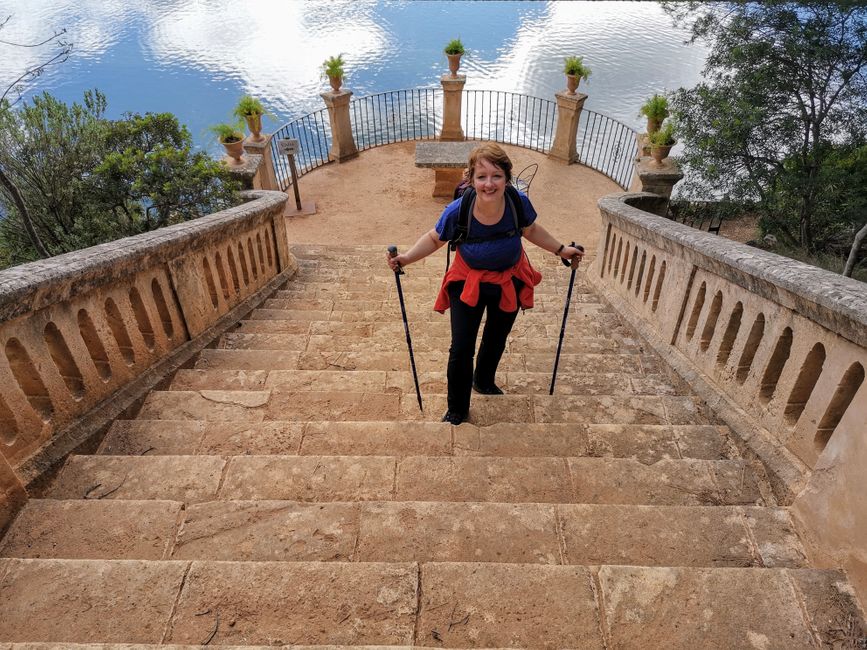Day 13, May 2, 2021: Visiting the church service and hiking to the property in Masule
Közzétett: 05.05.2021
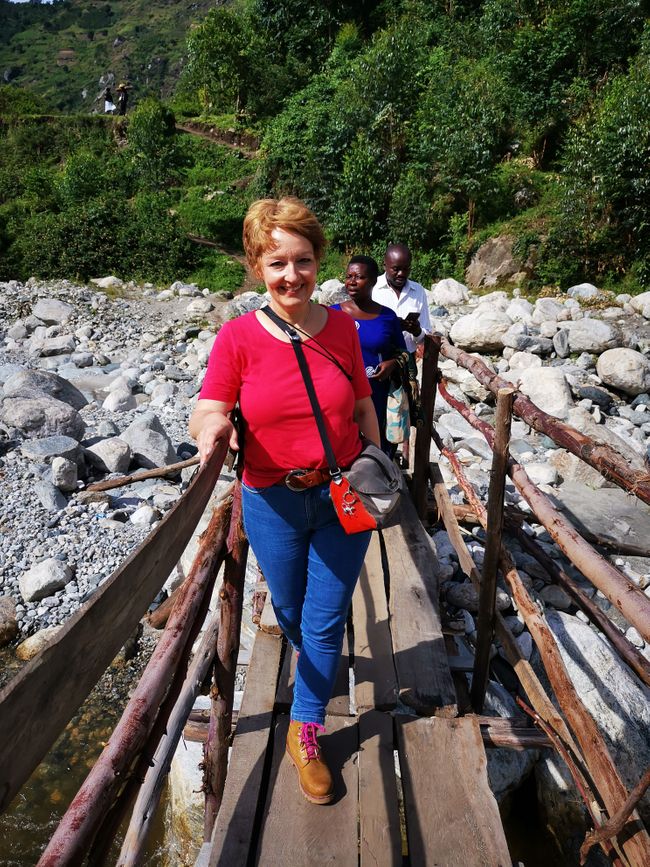
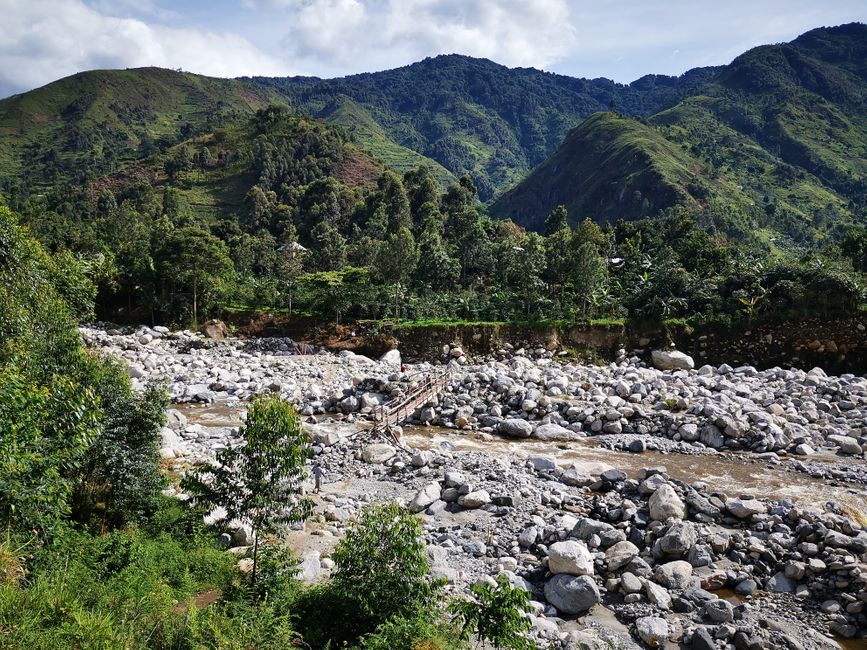
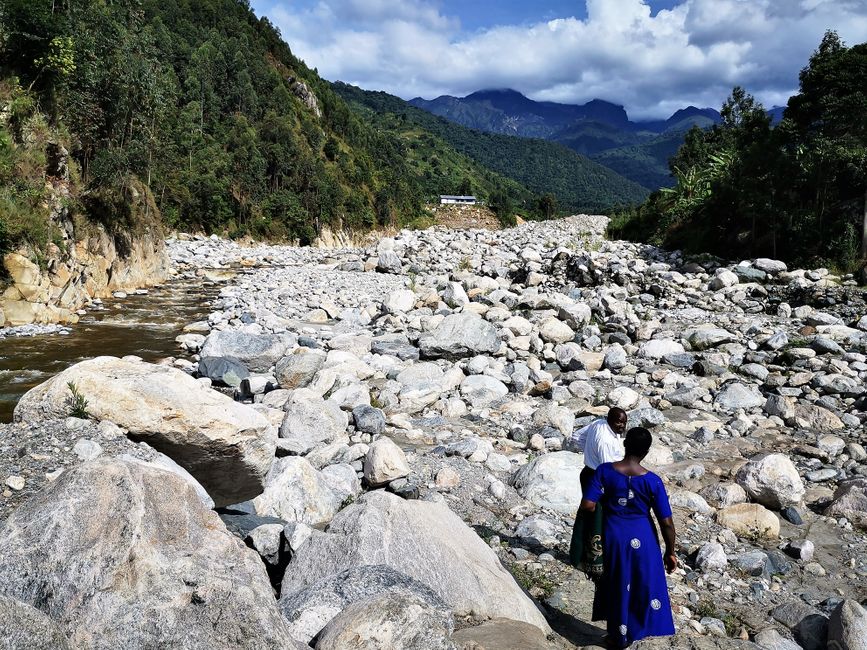
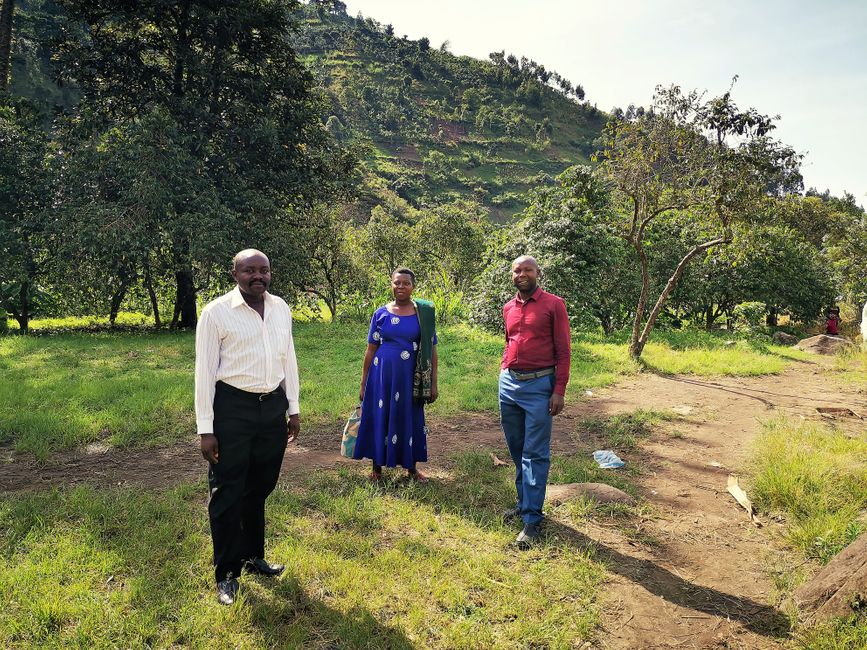
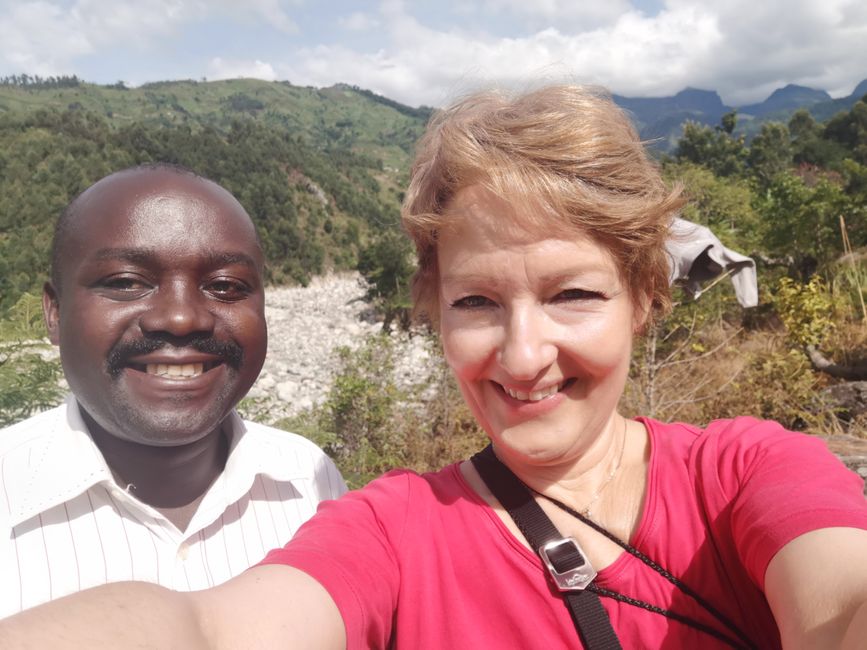
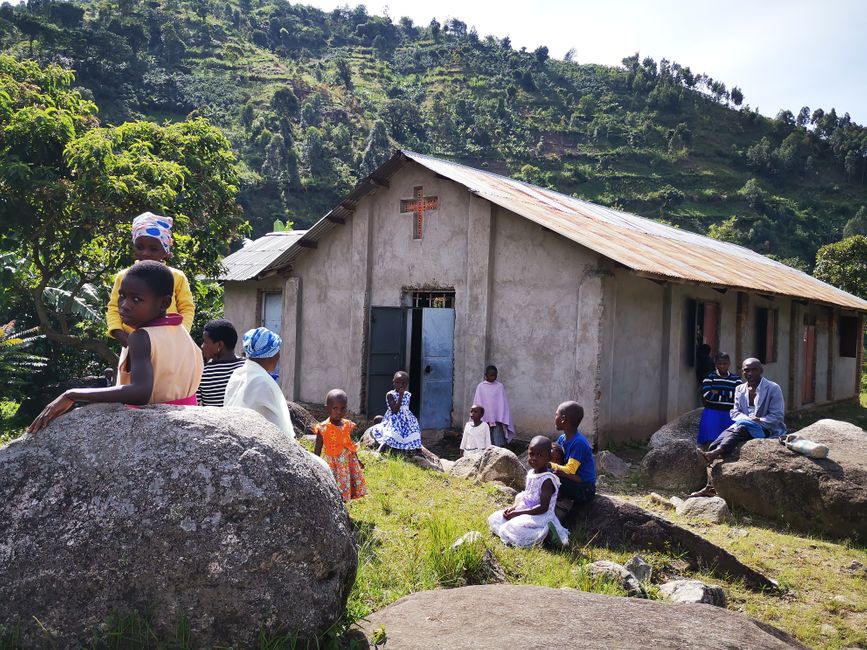
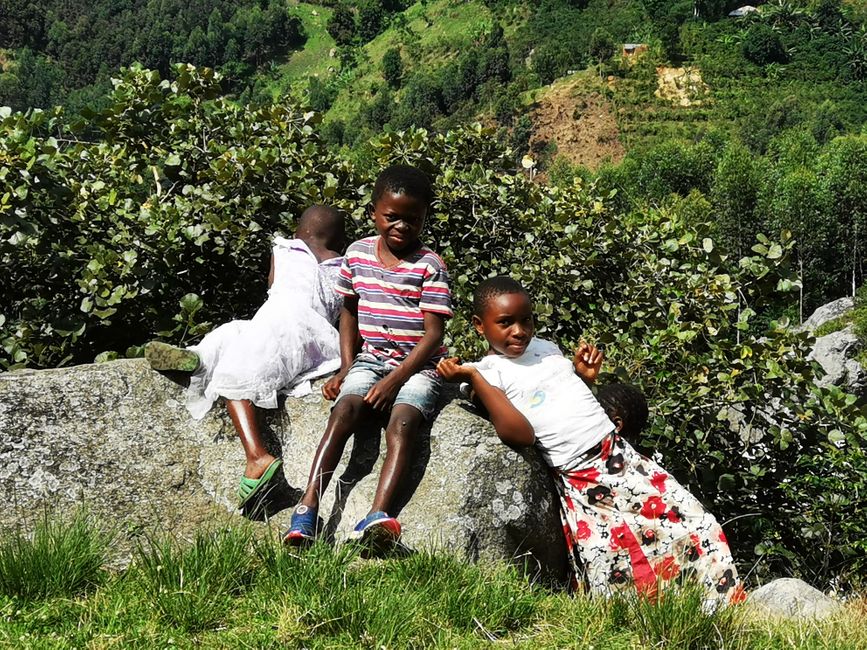
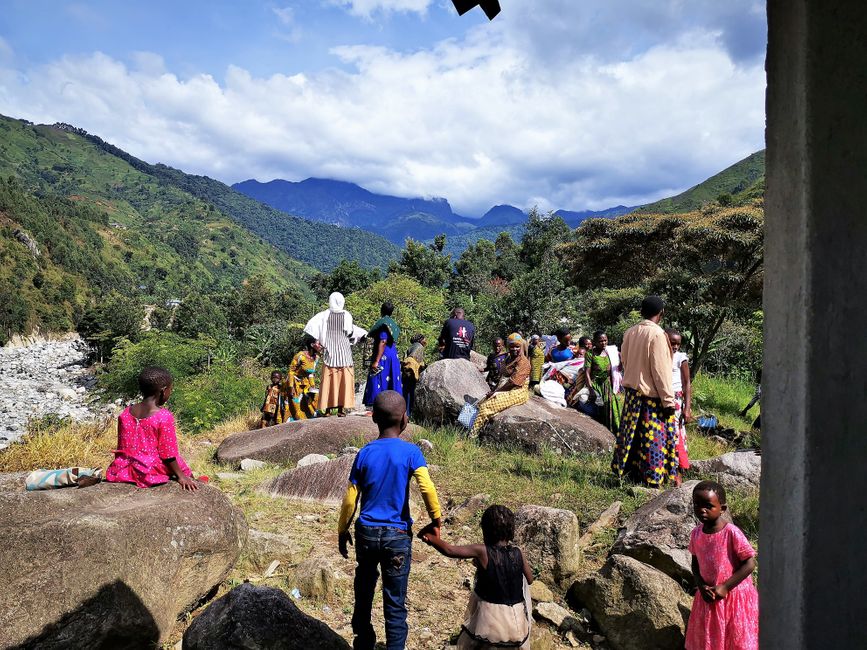
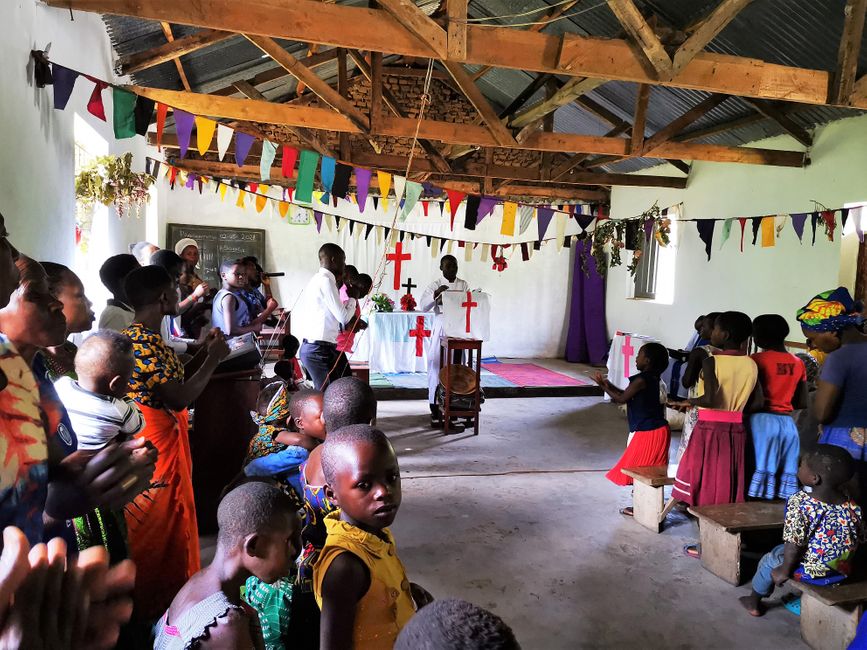
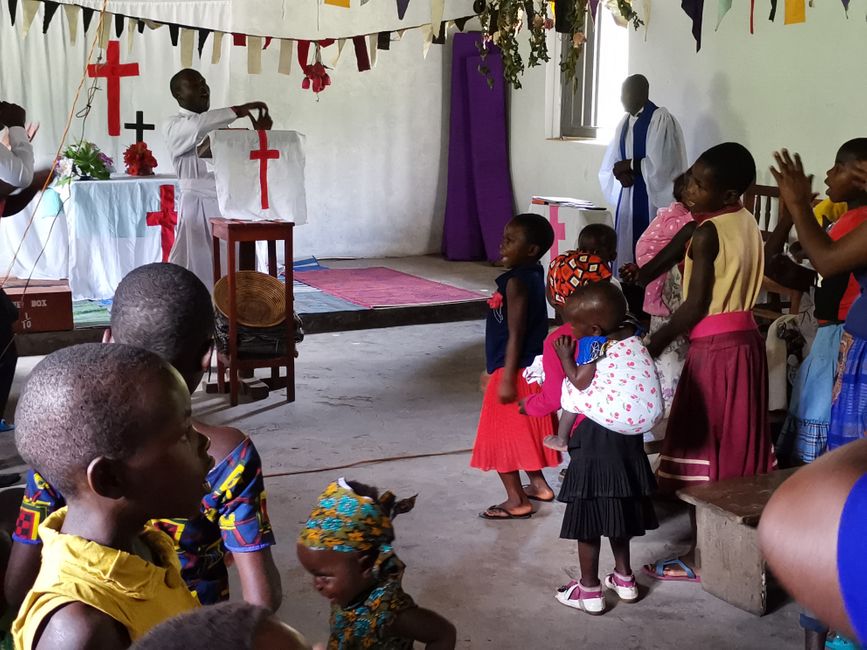
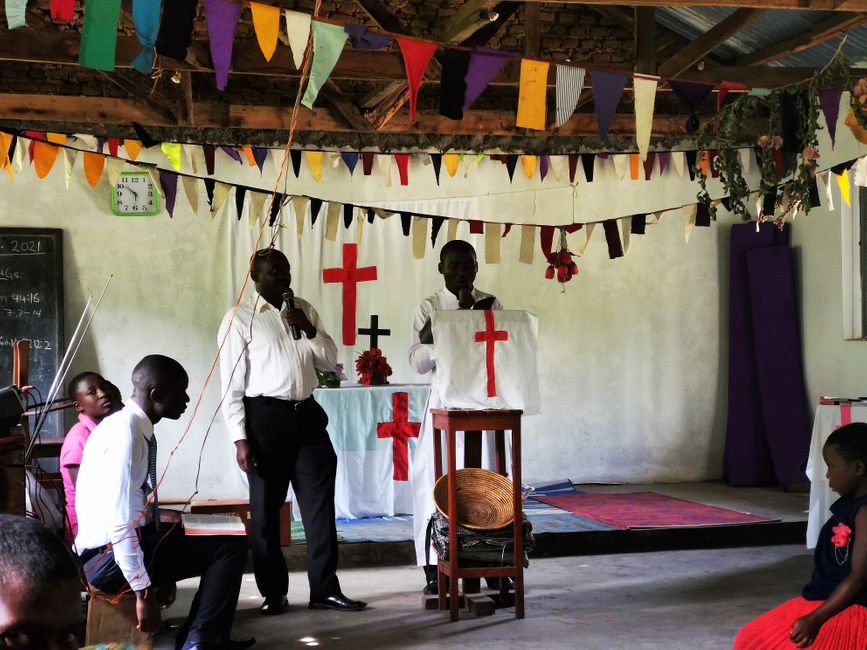
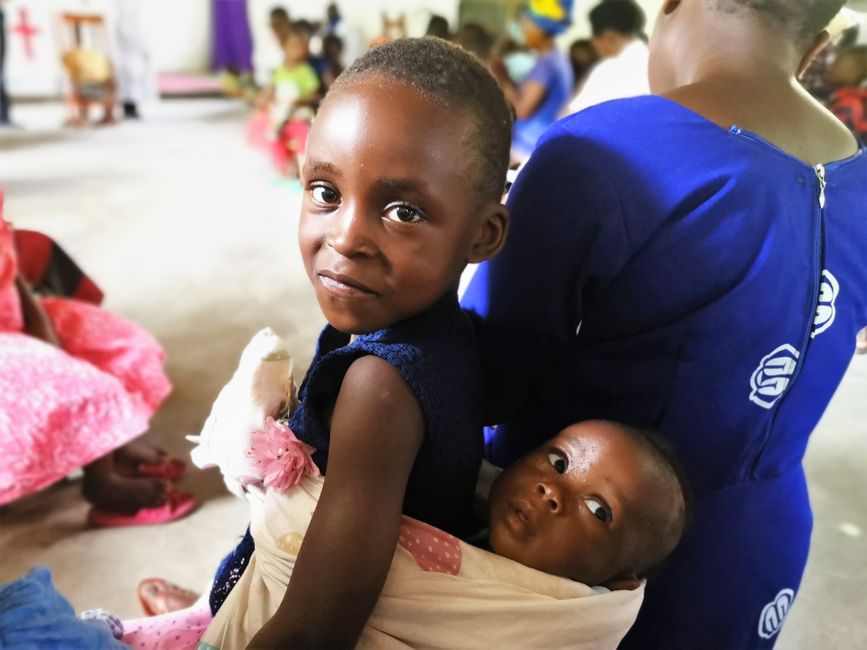
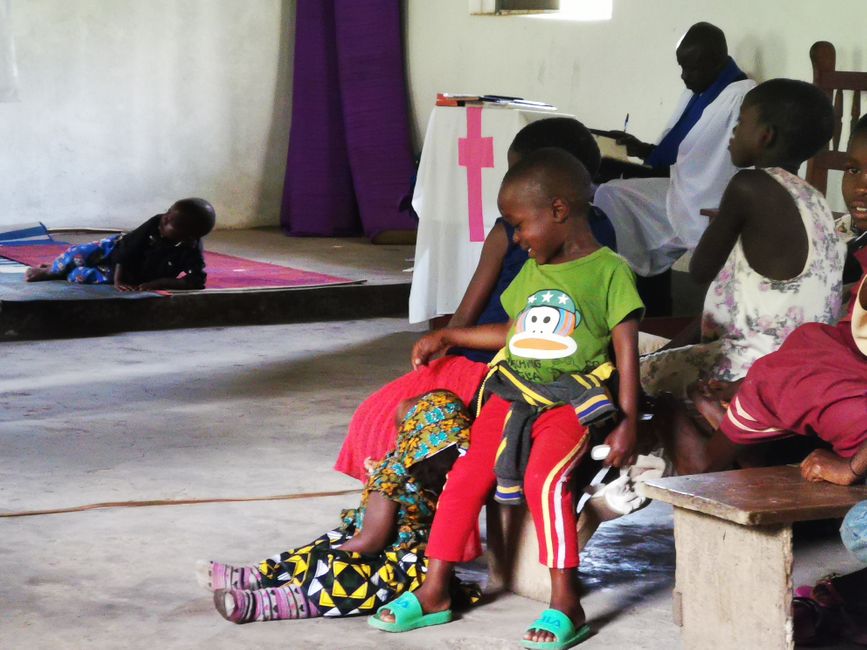
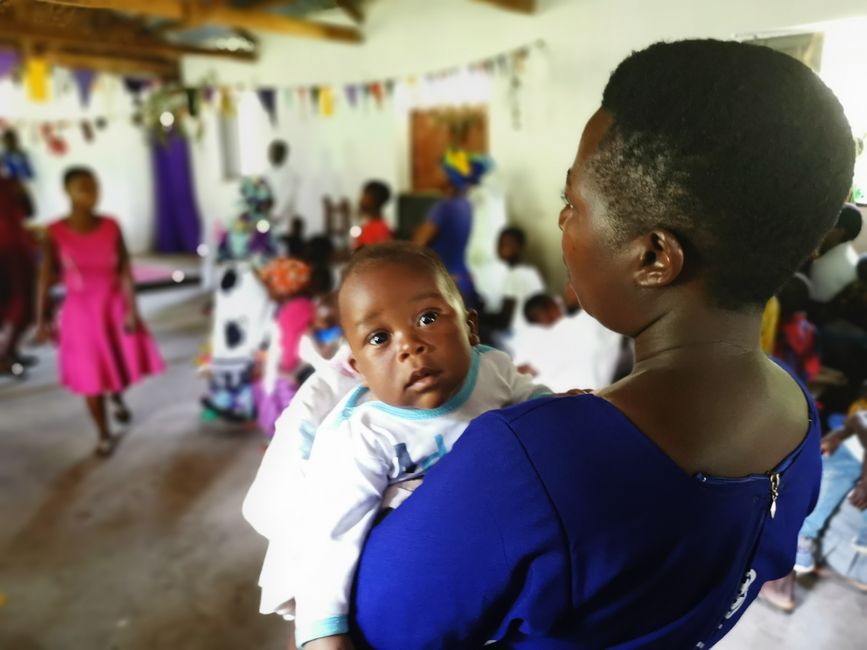
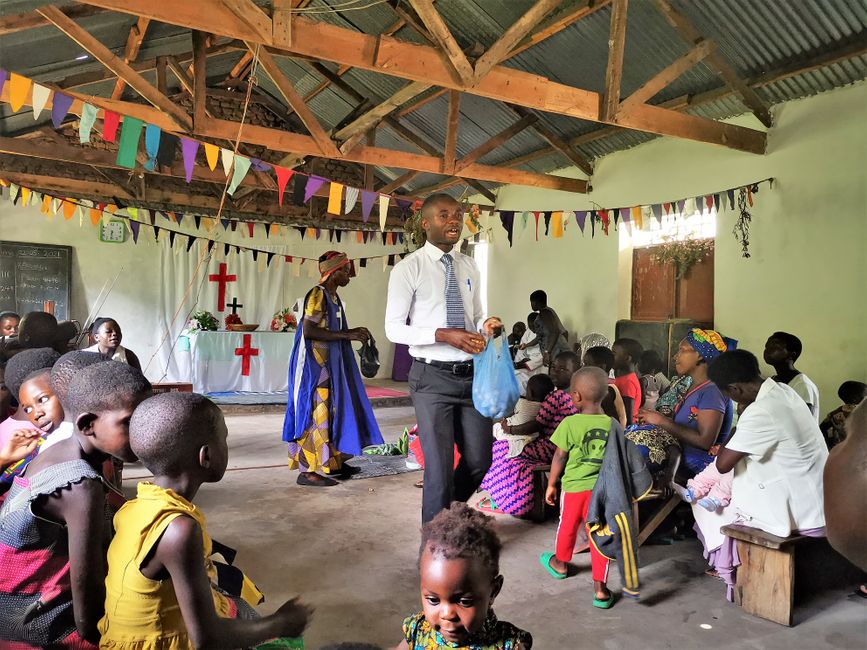
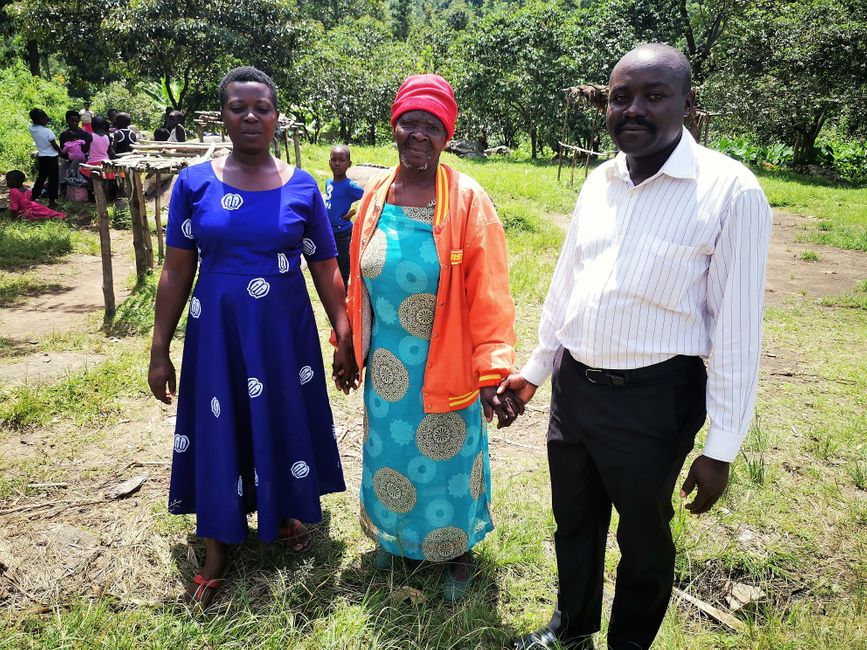
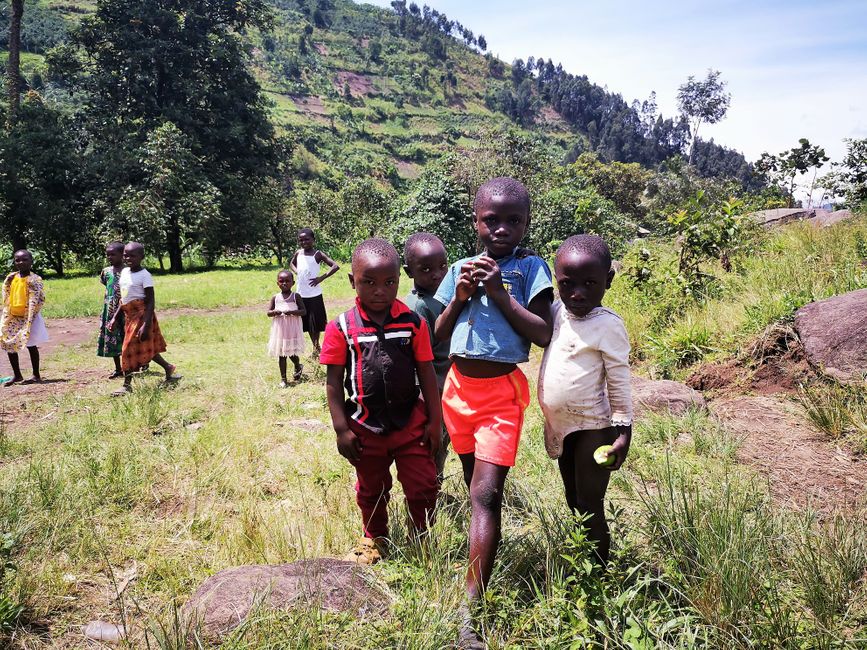
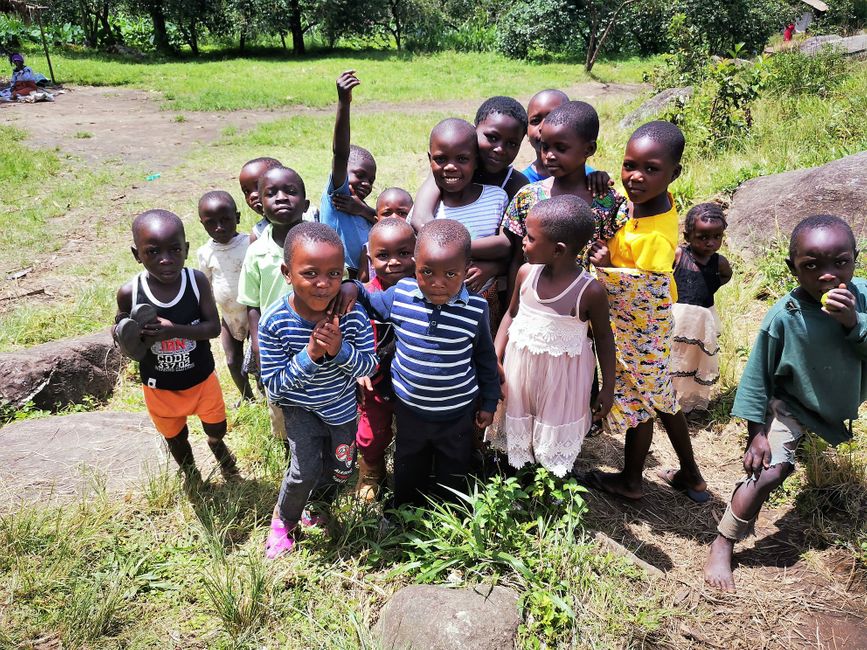
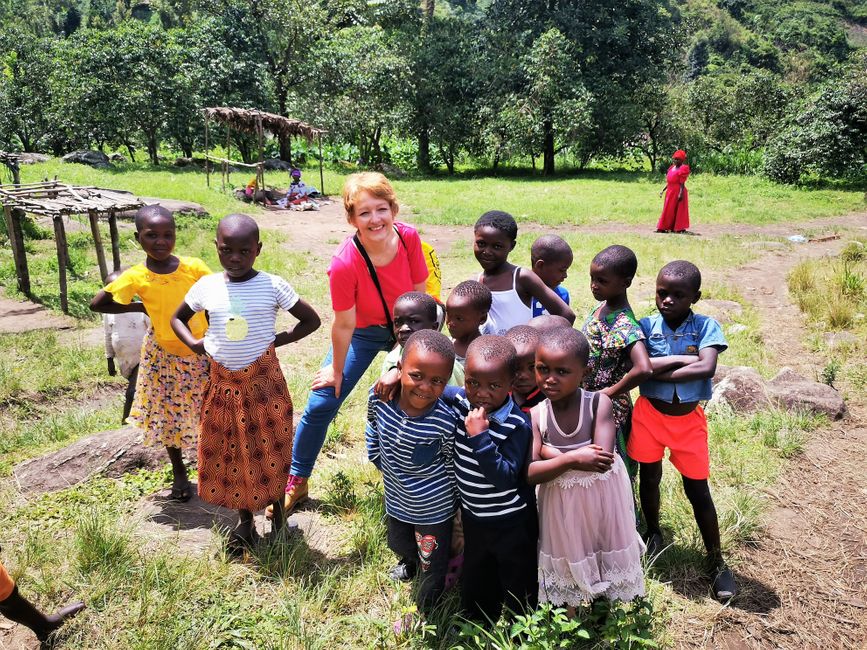
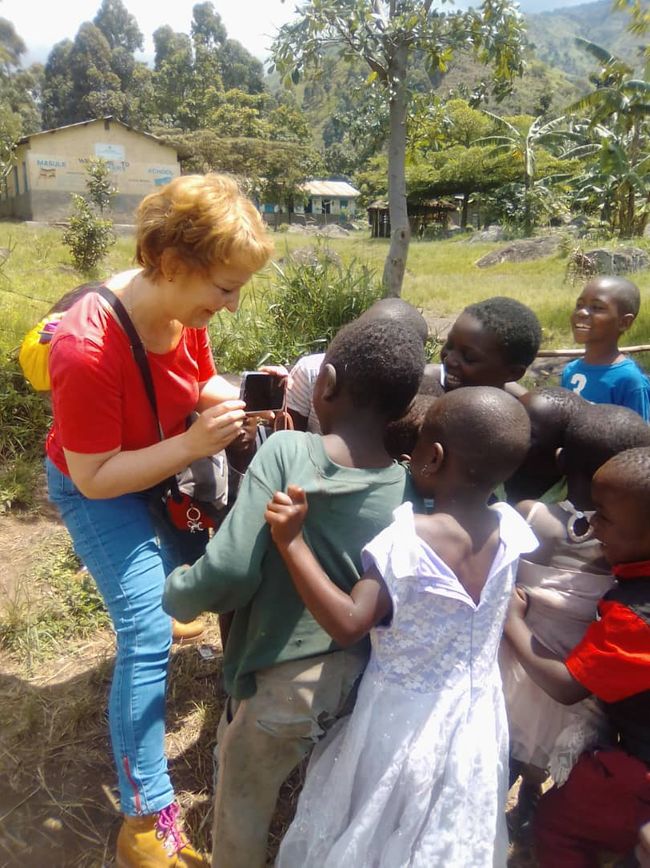
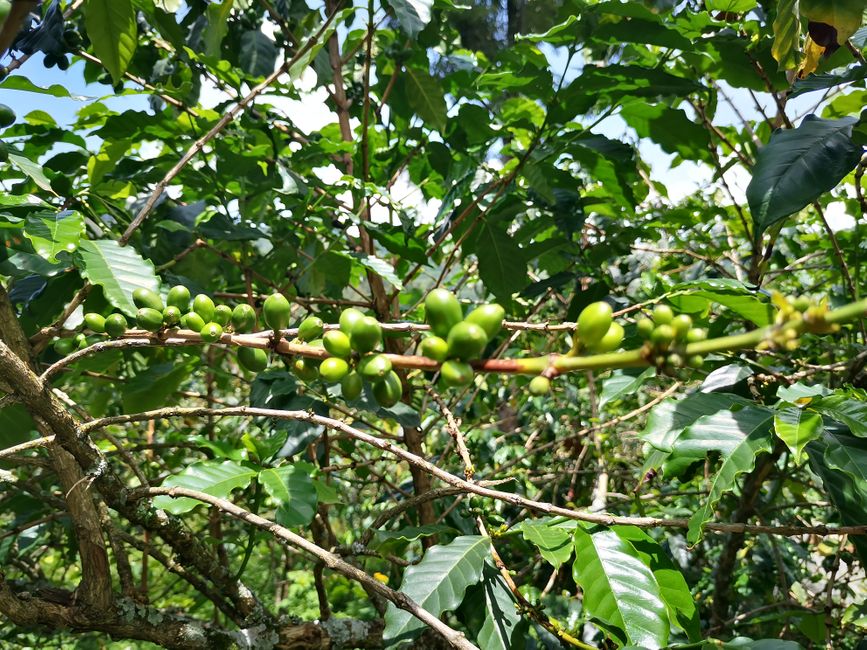
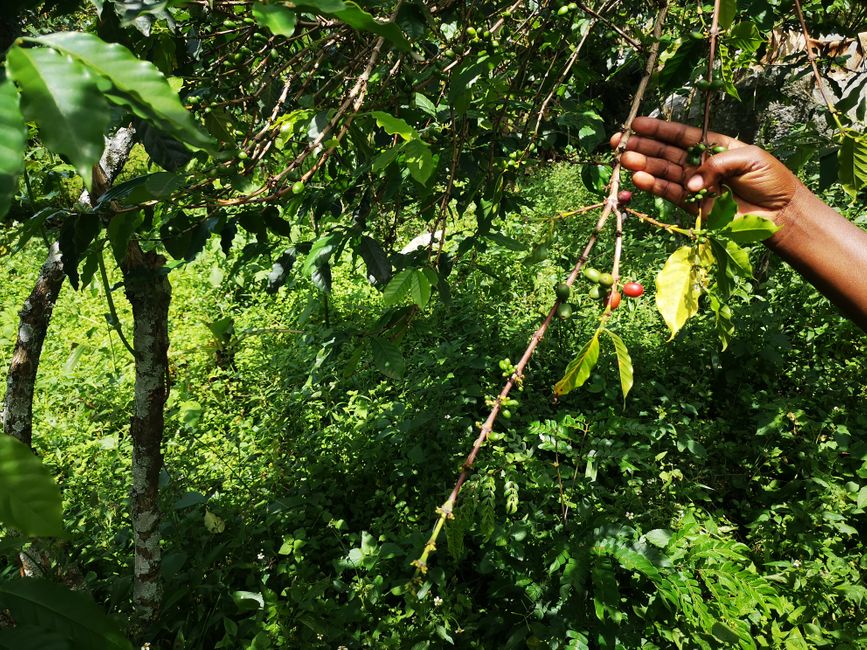
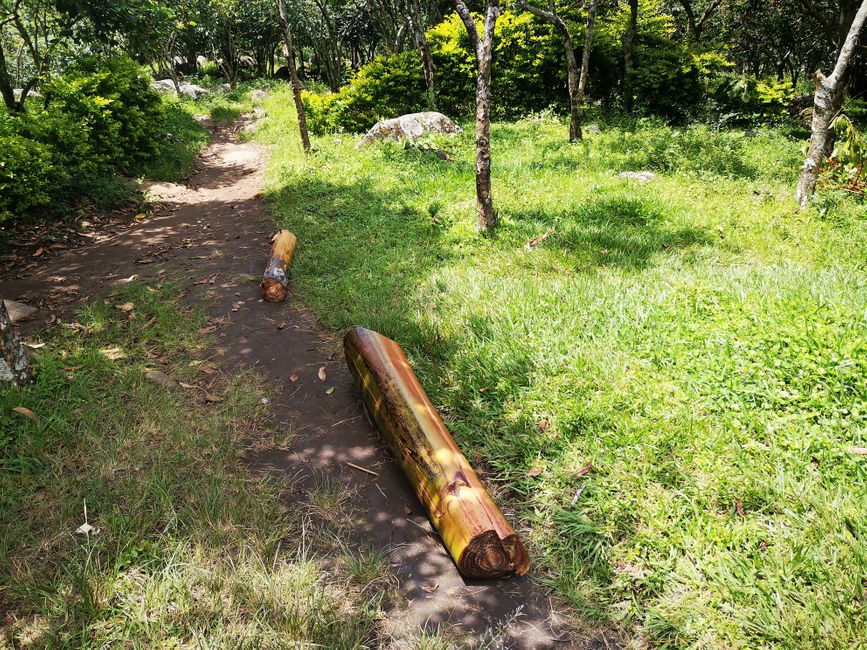
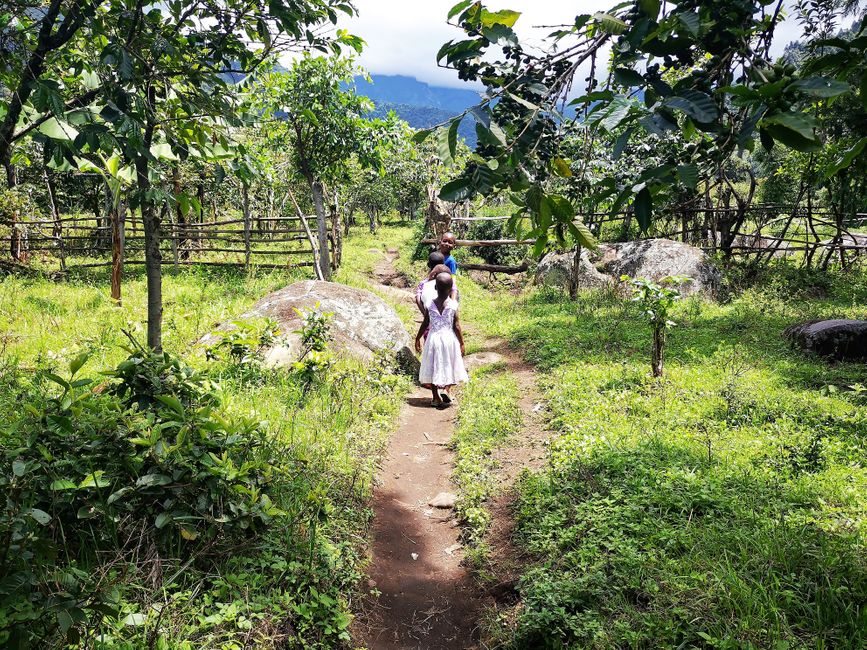
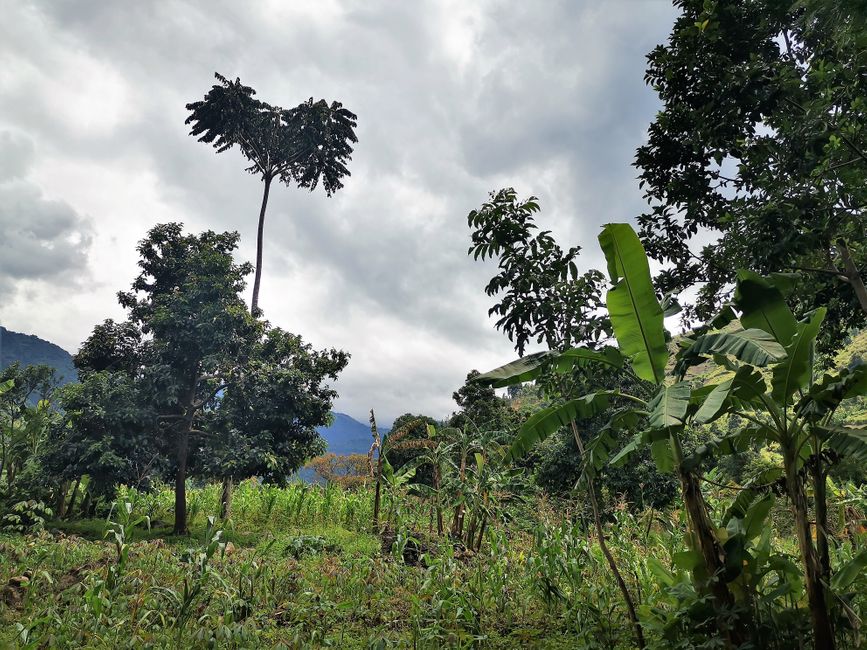
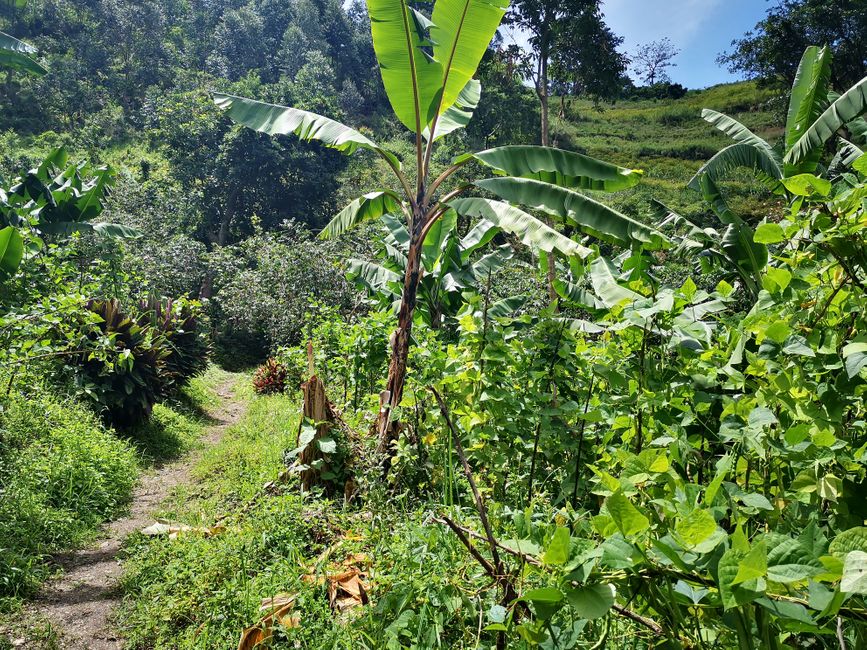
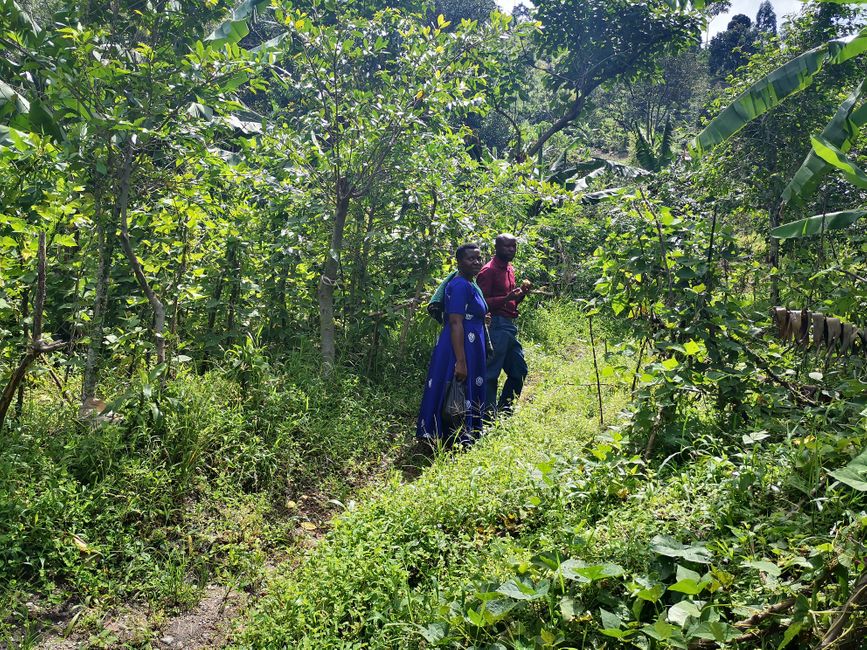
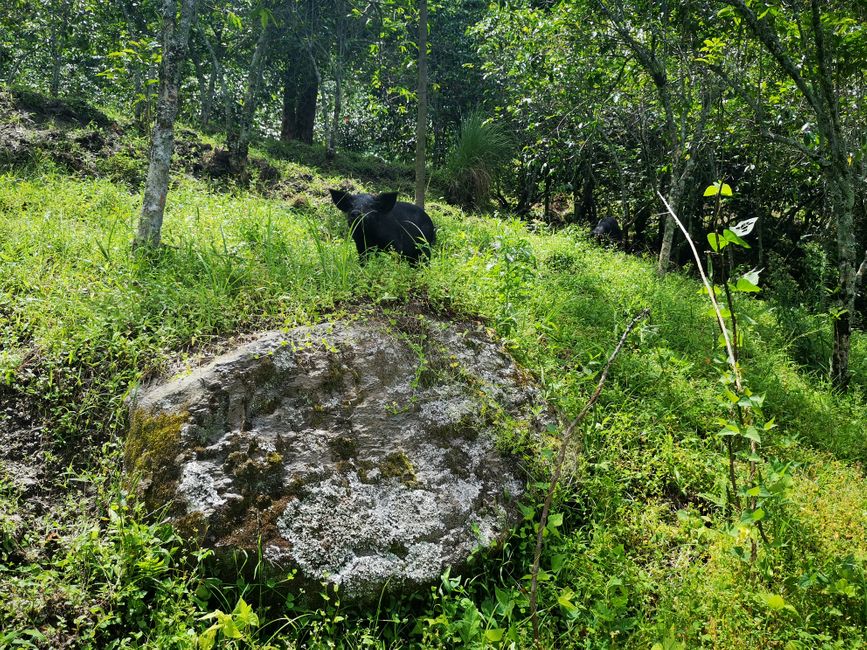
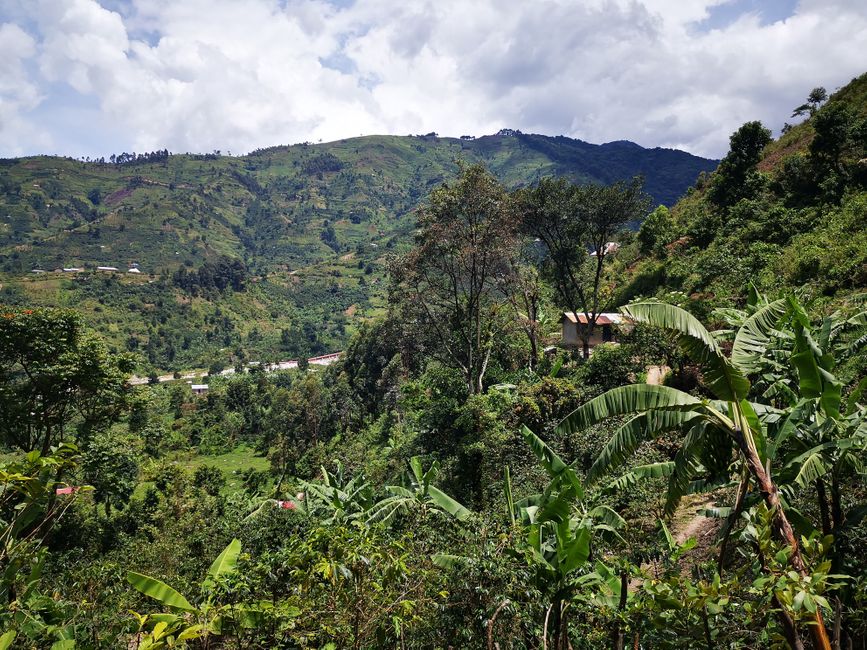
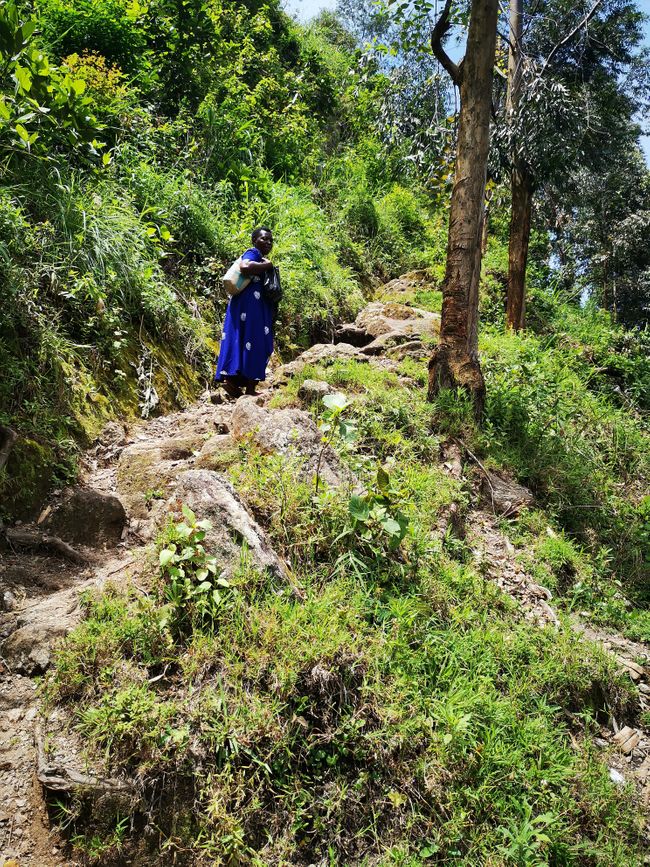
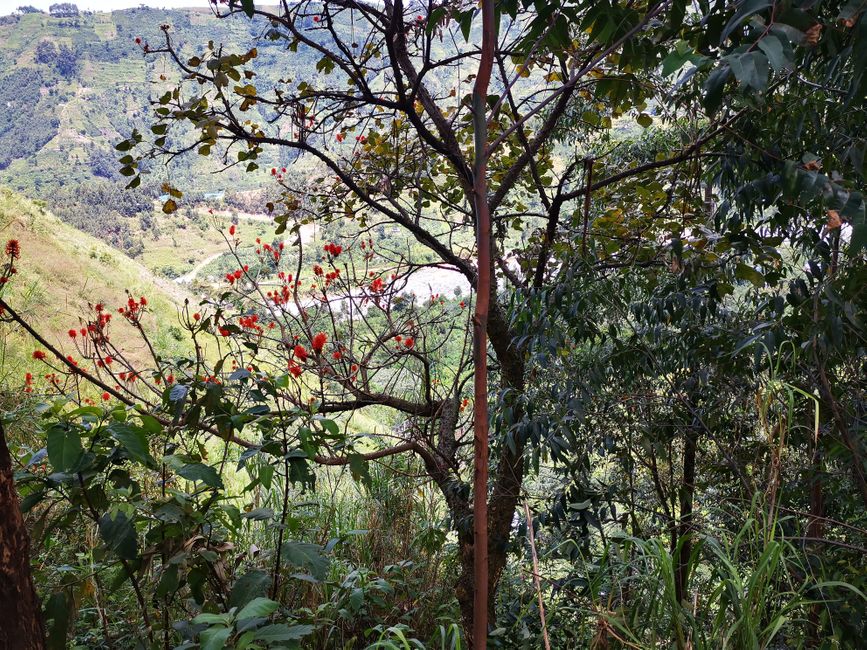
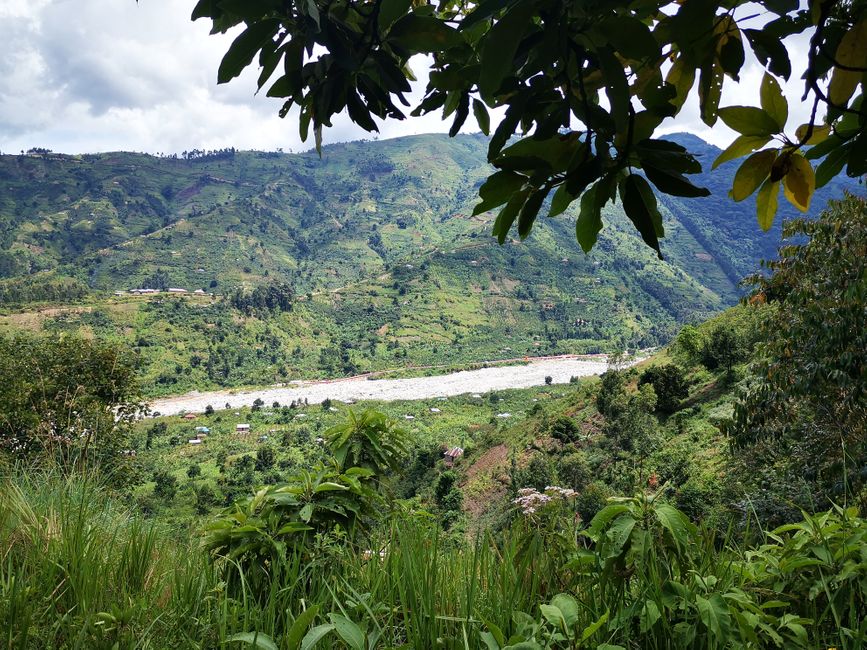
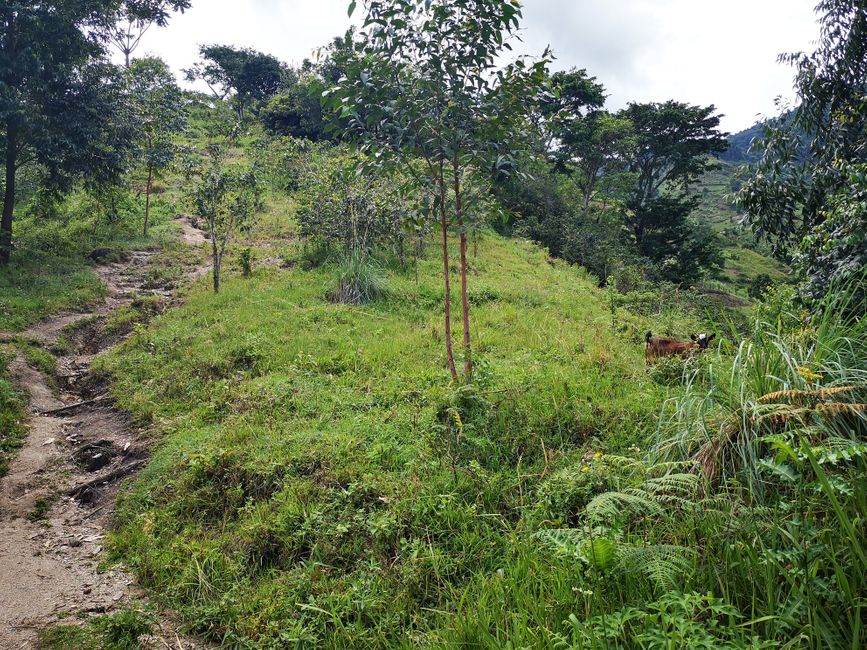
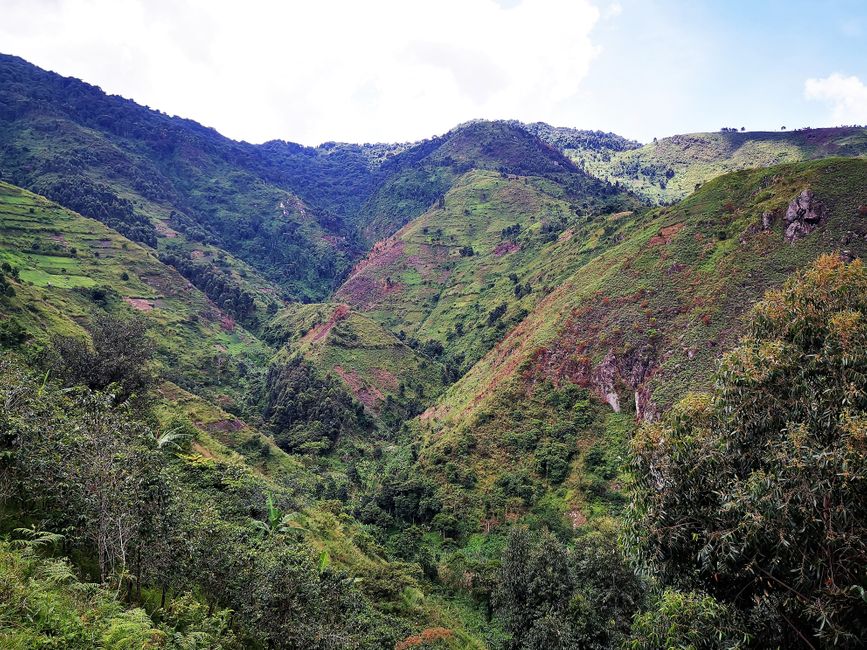
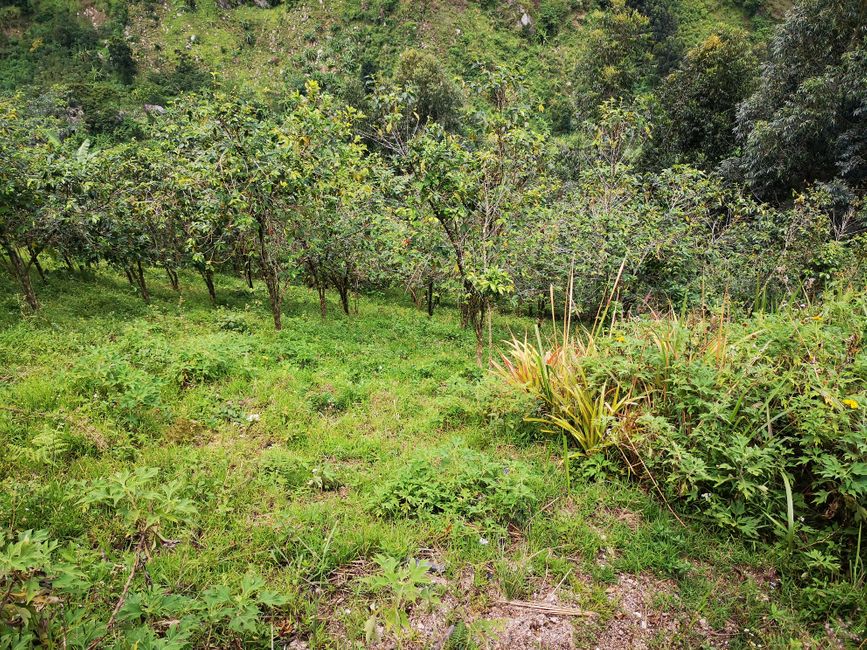
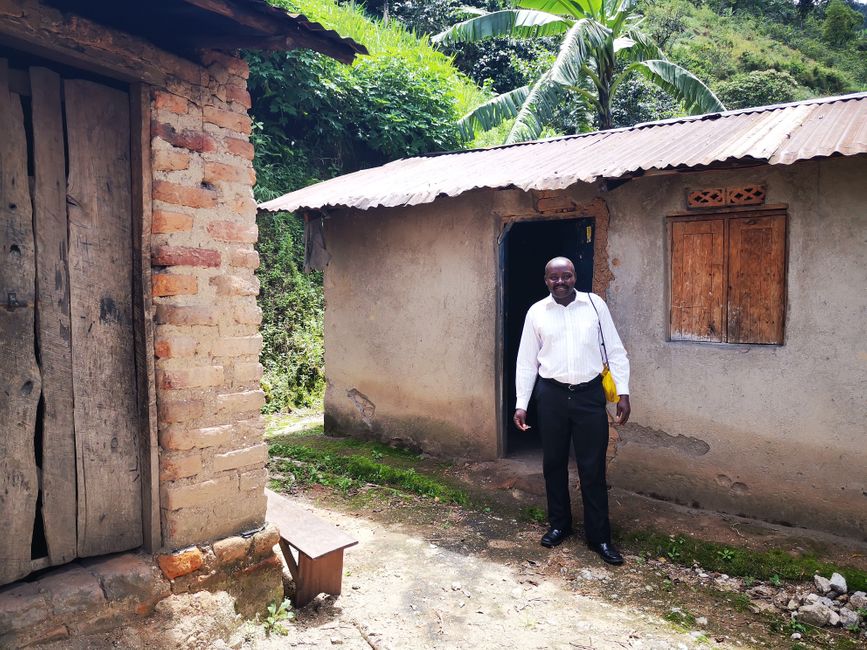
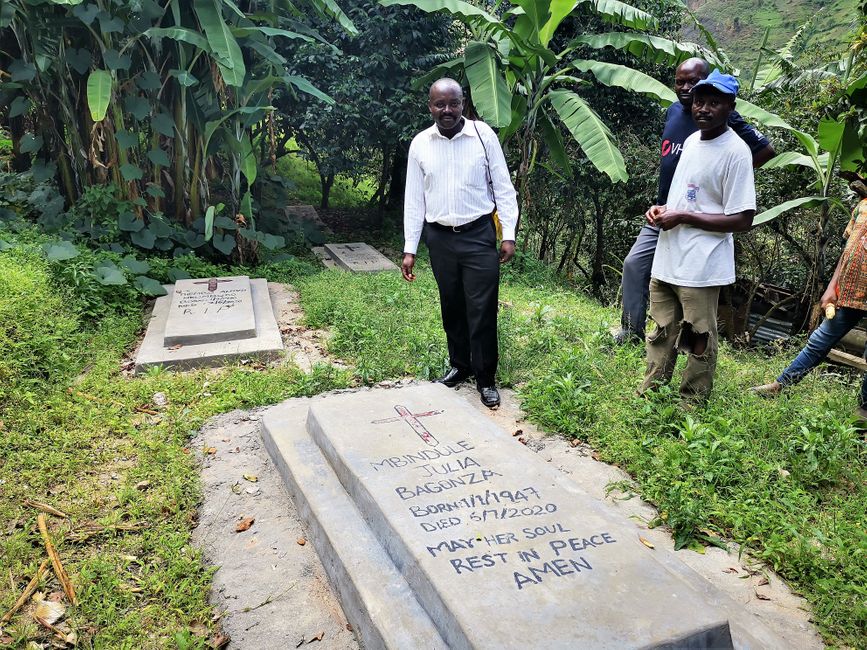
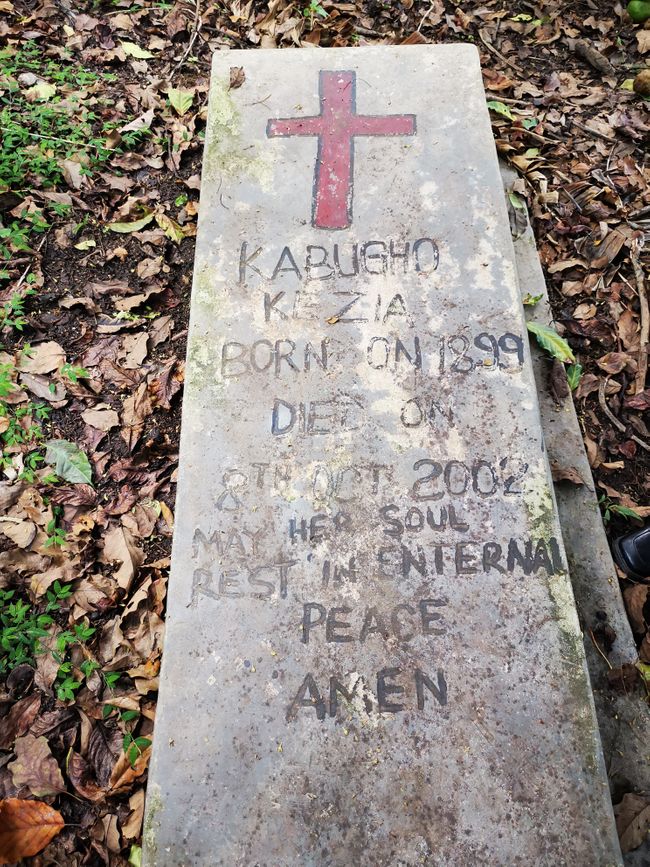
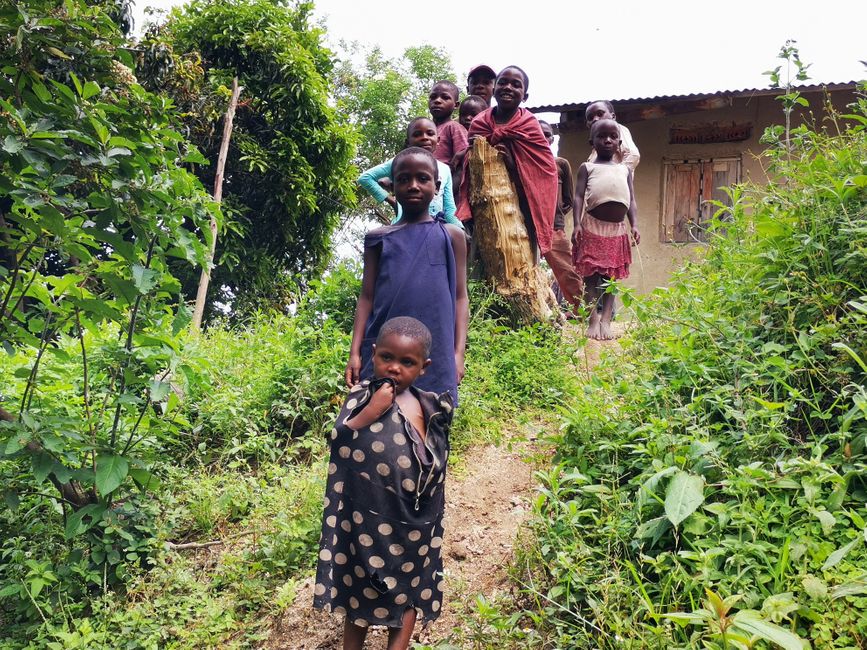
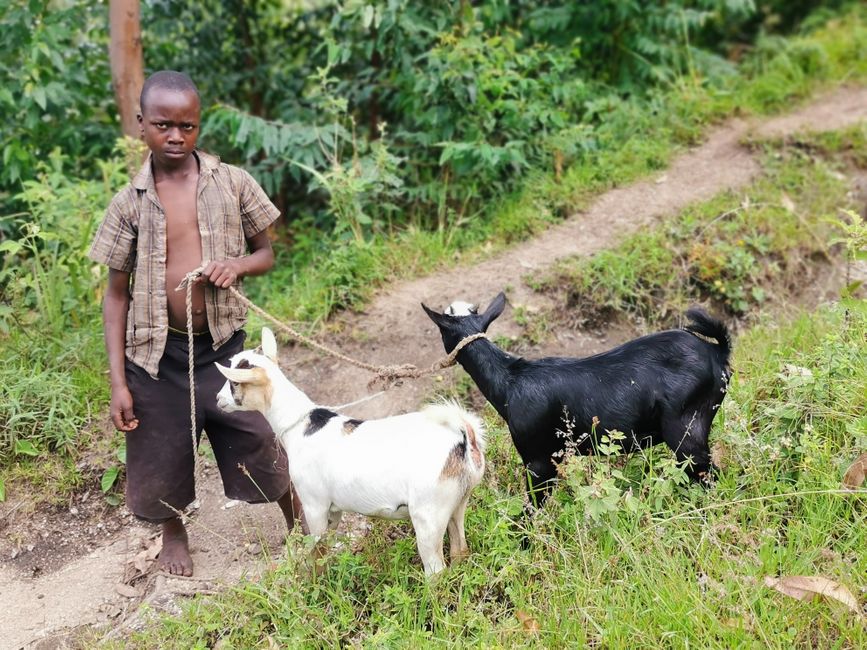
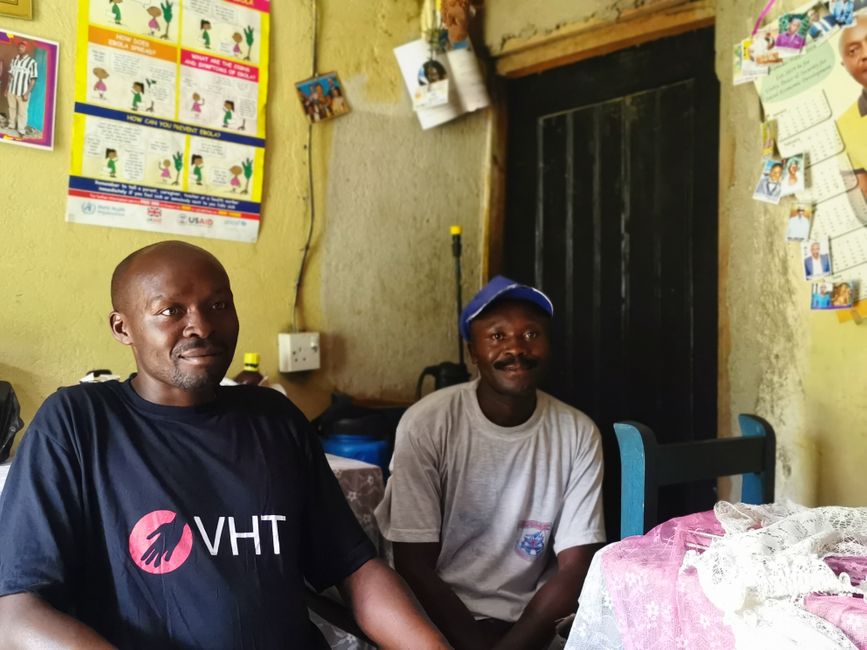
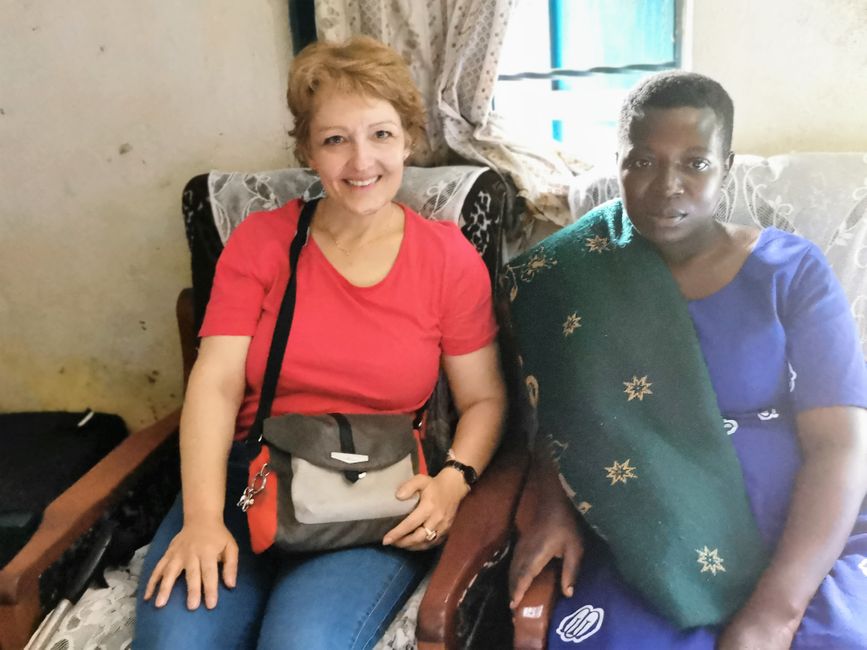
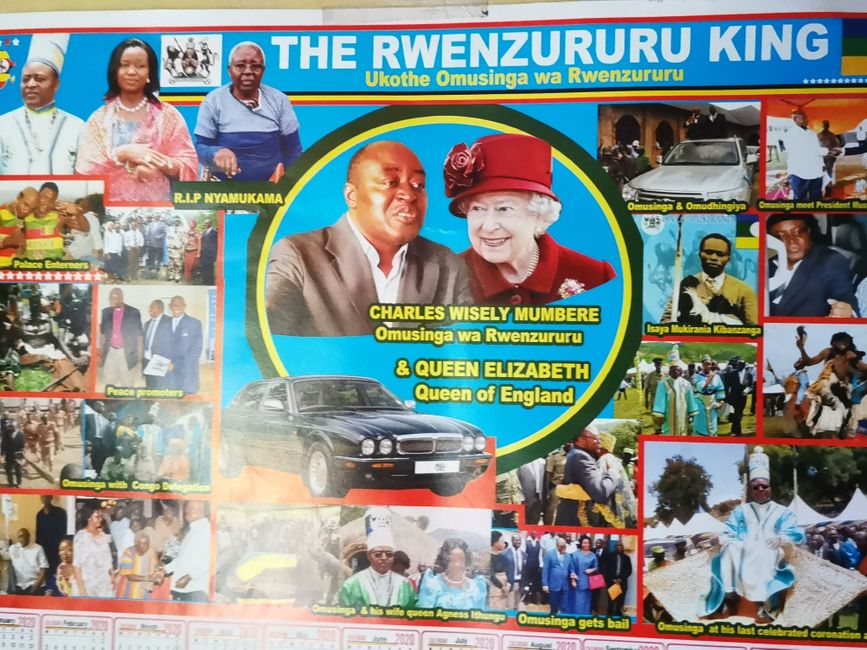
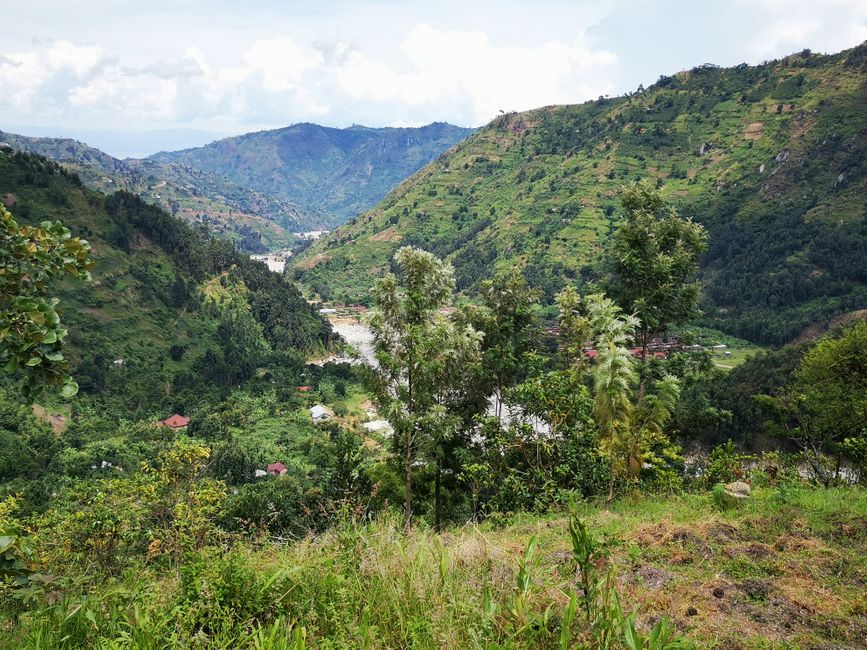
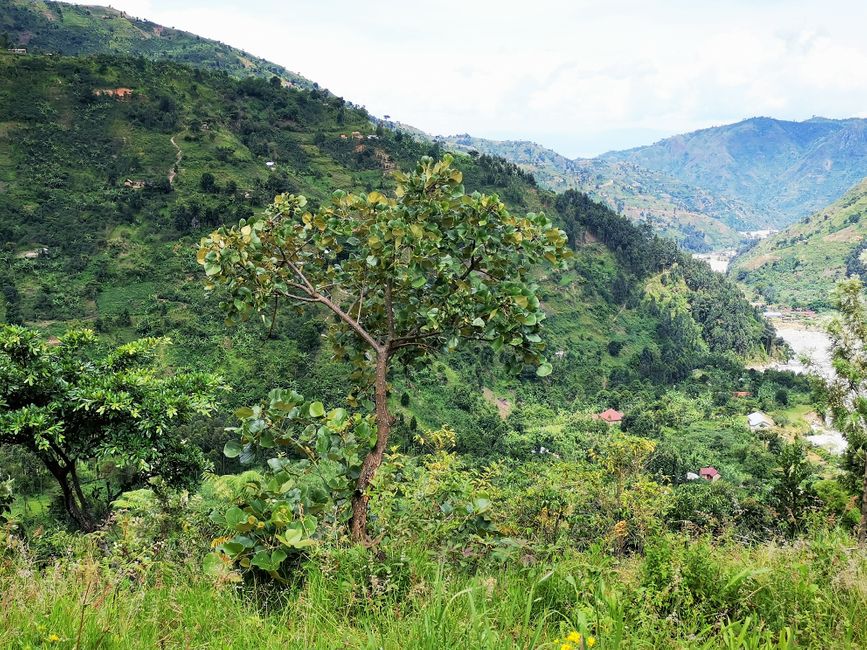
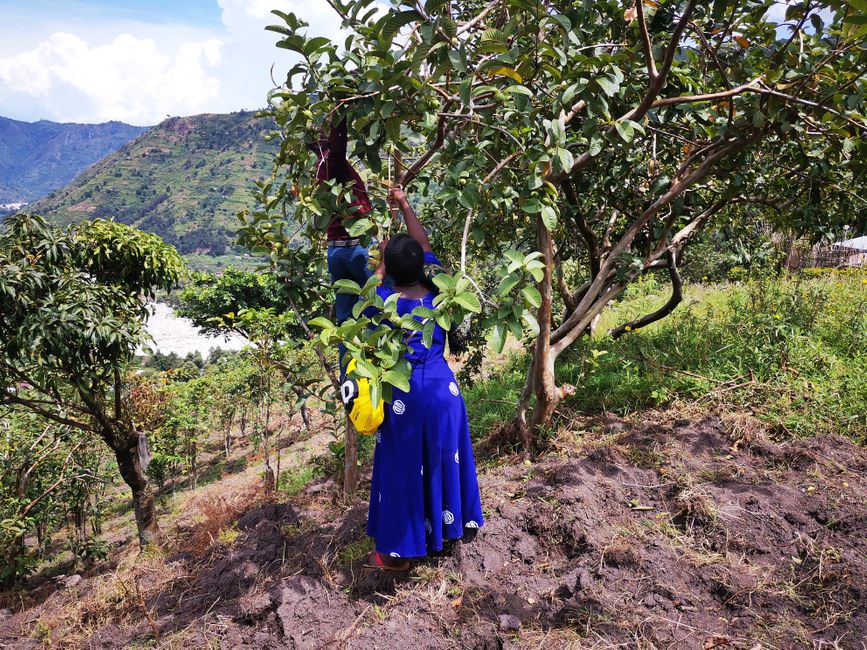
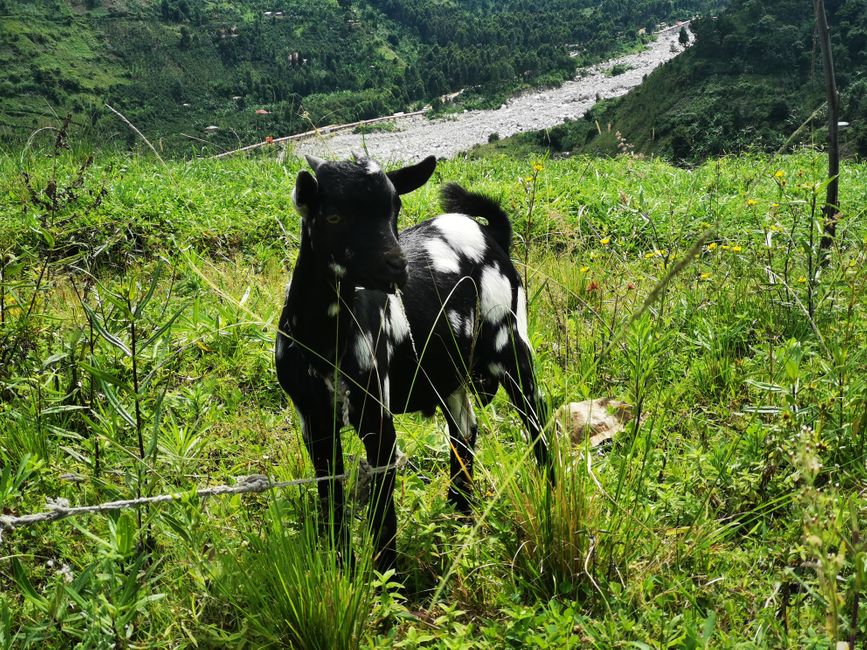
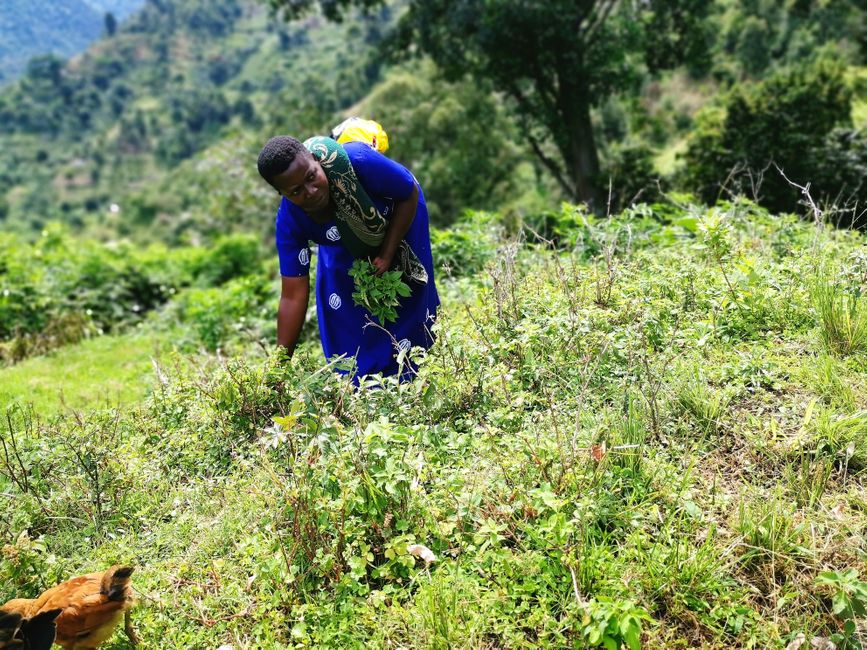
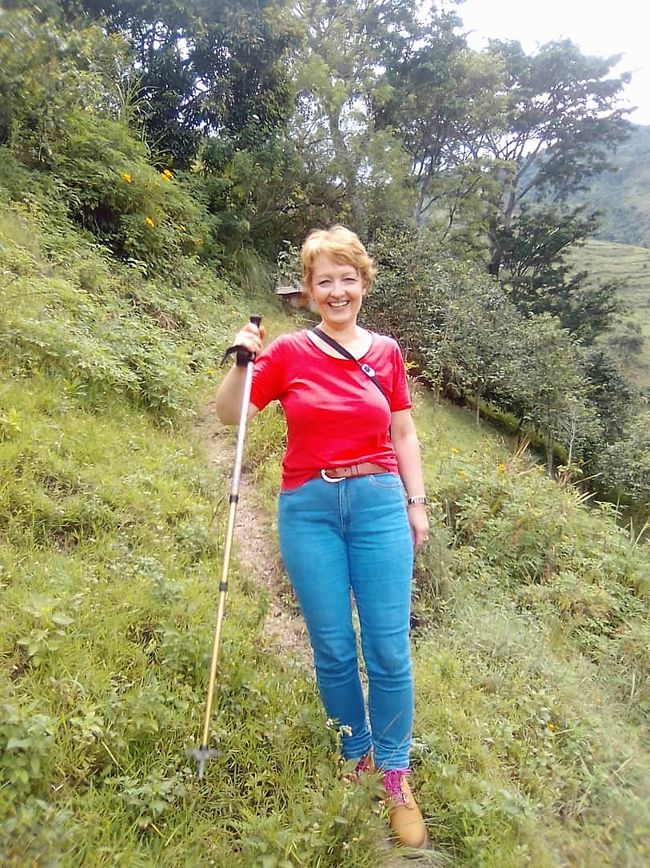
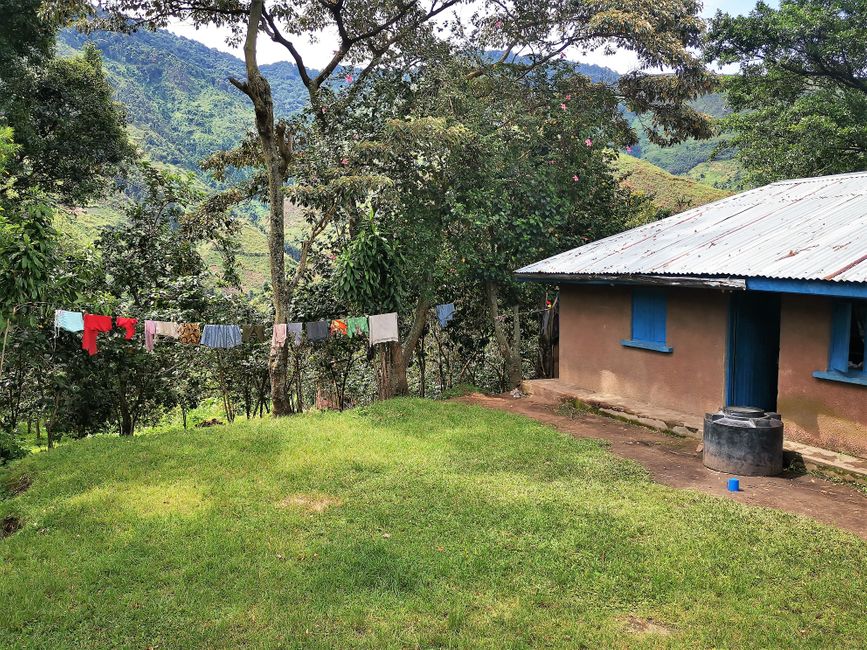
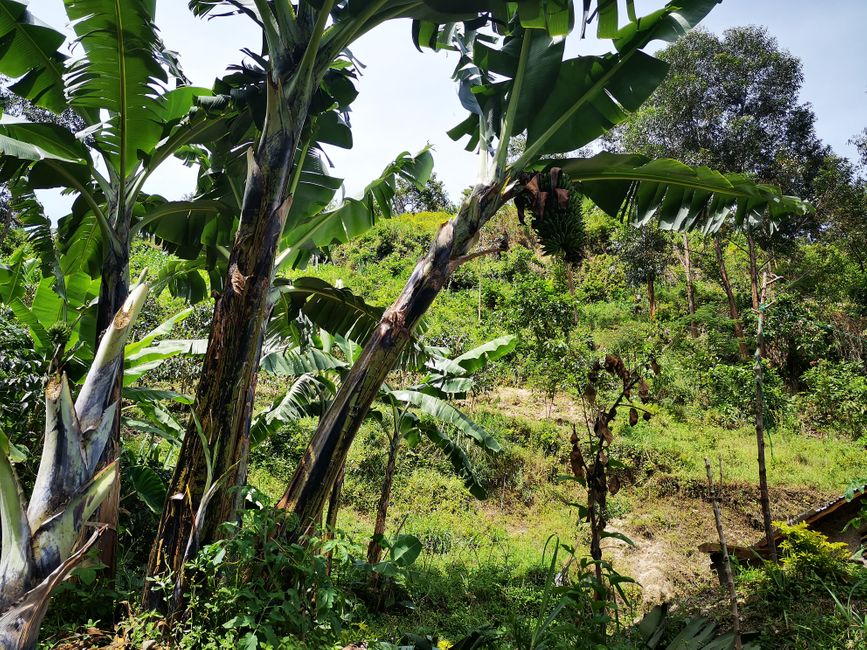
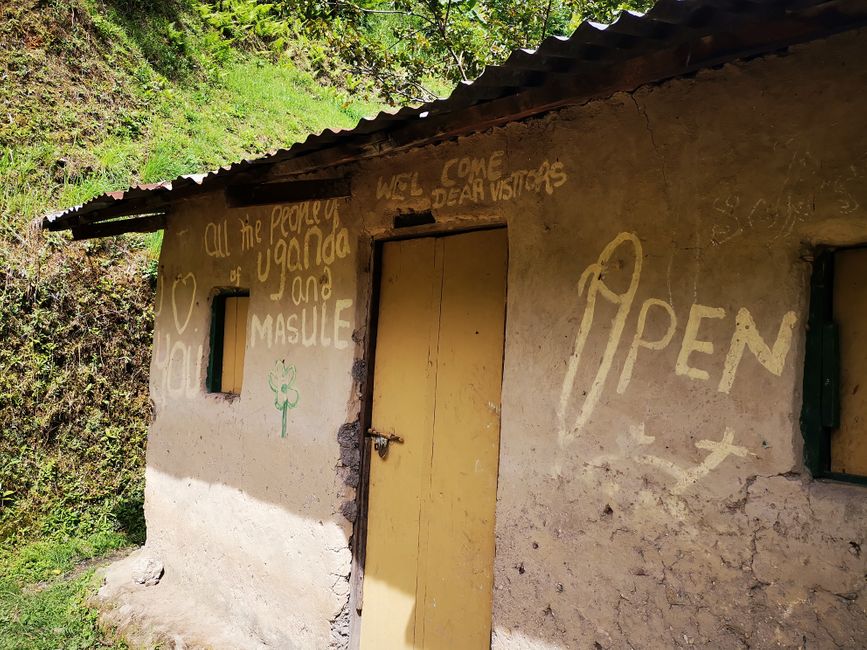
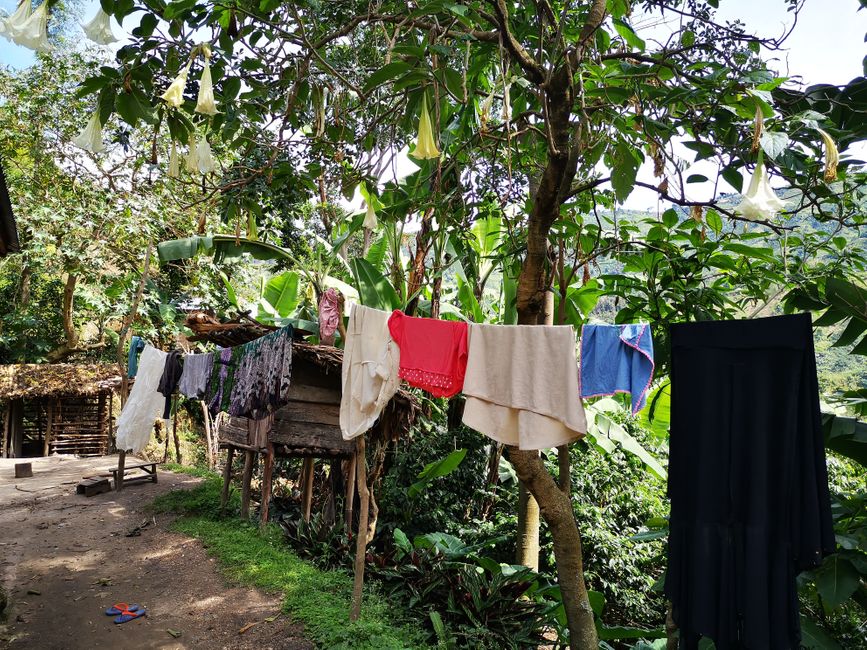
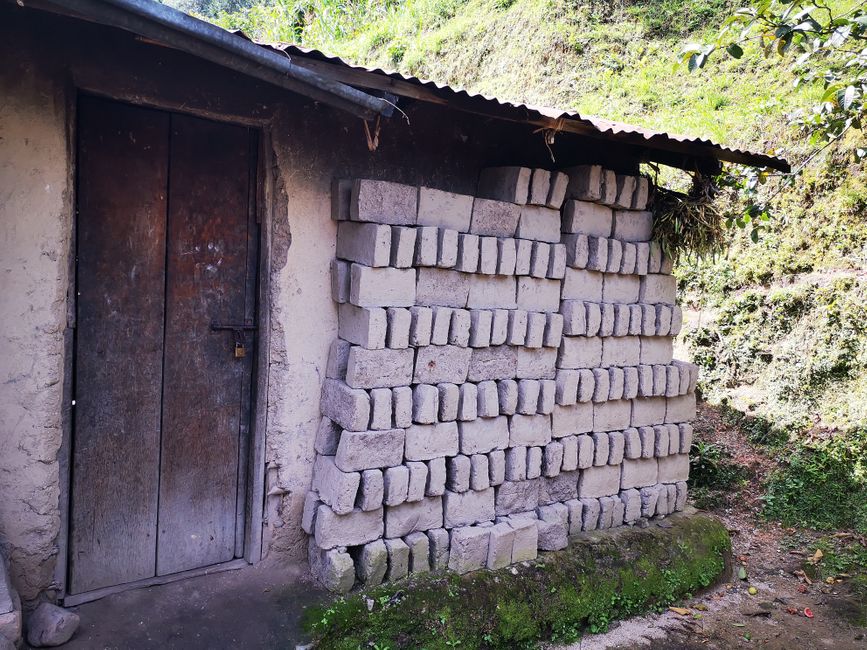
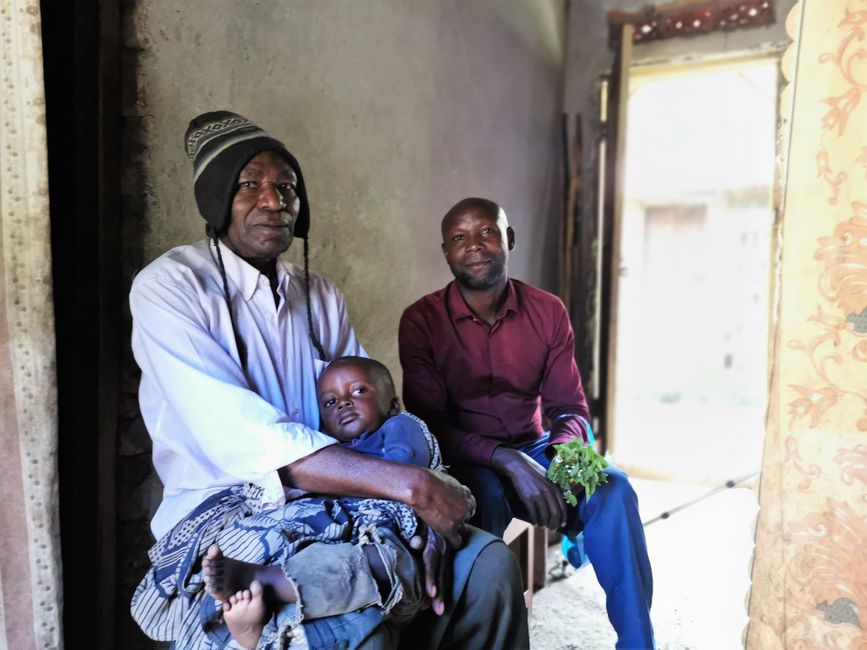
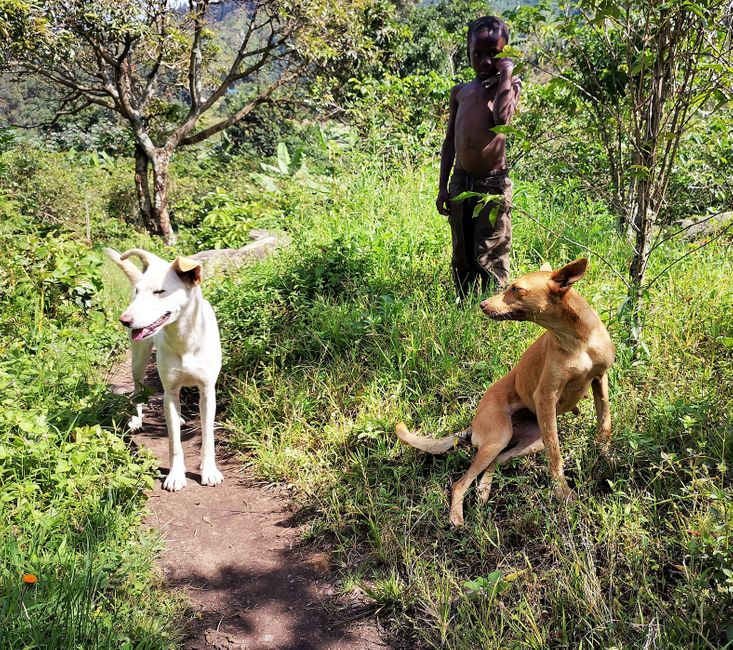
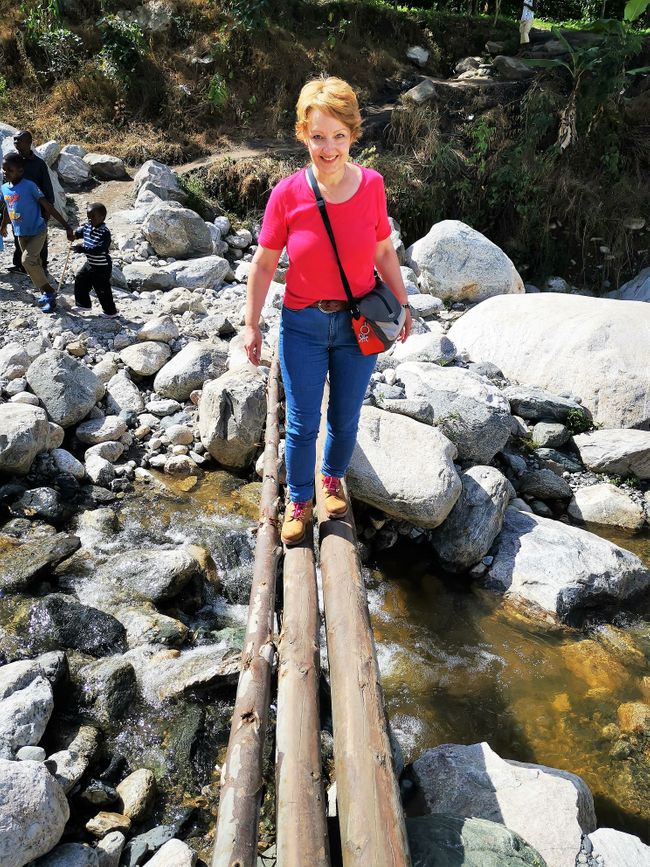
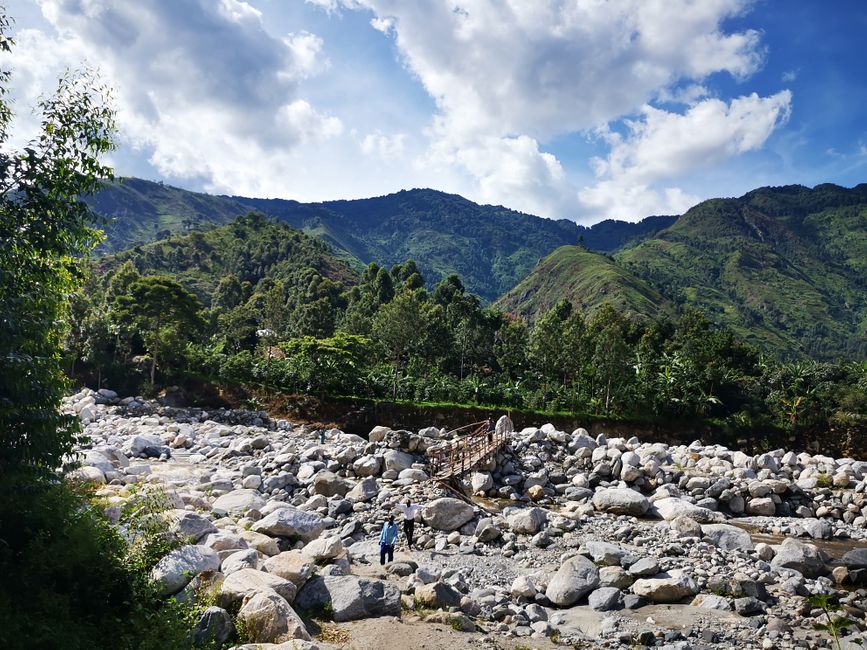
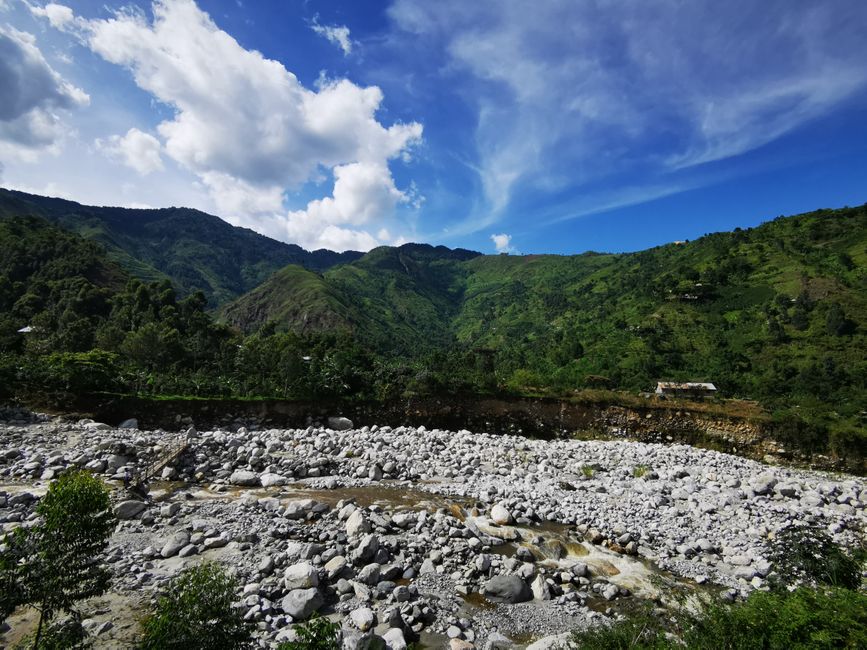
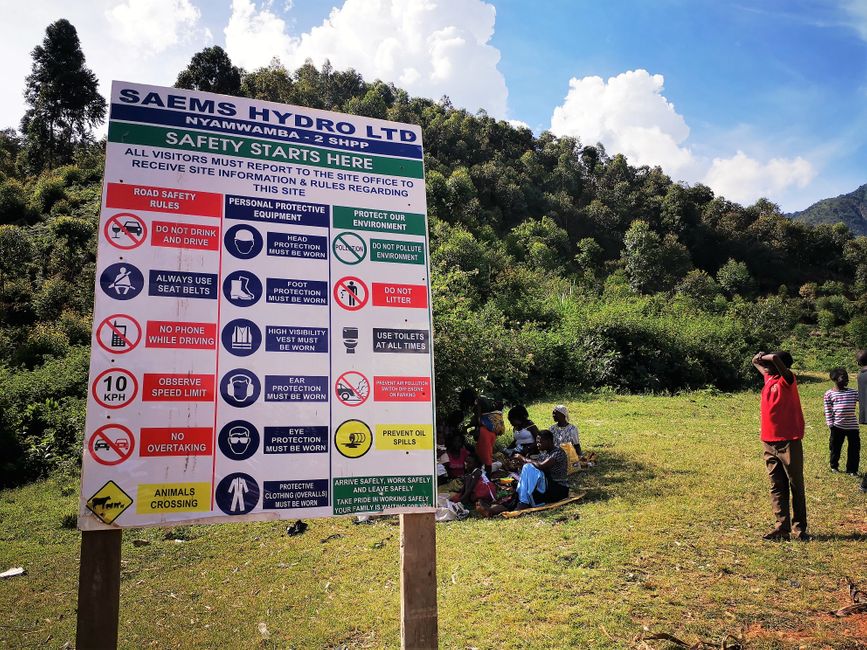
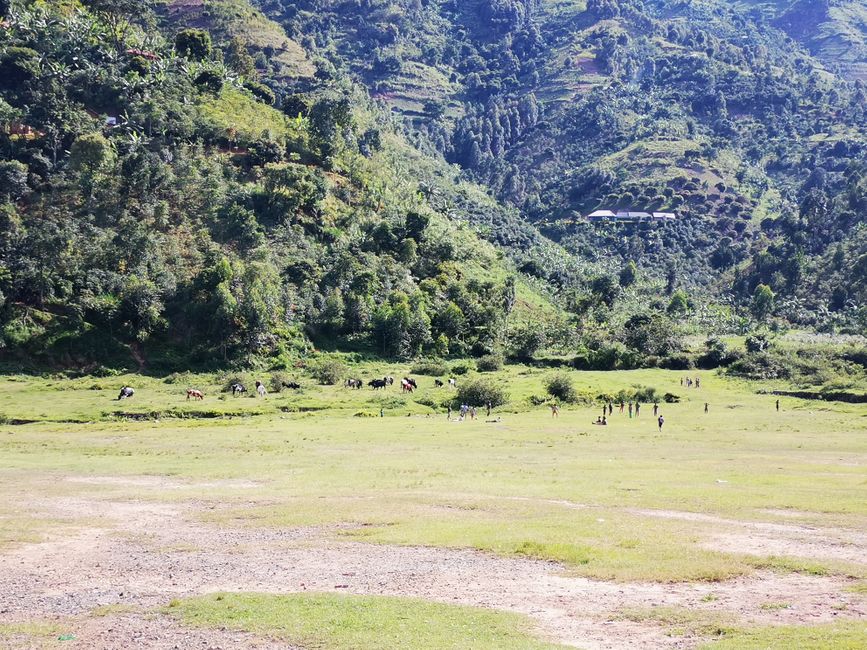
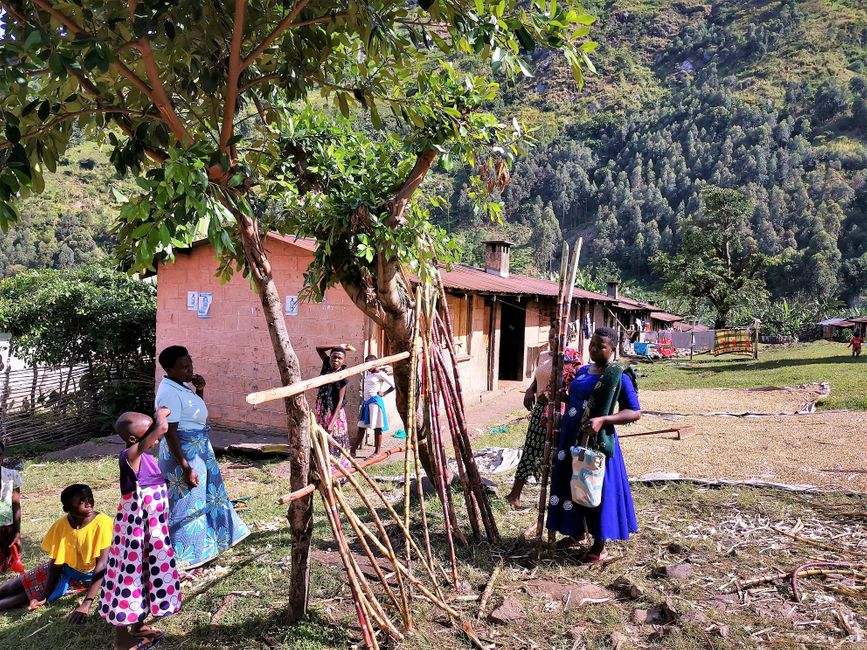
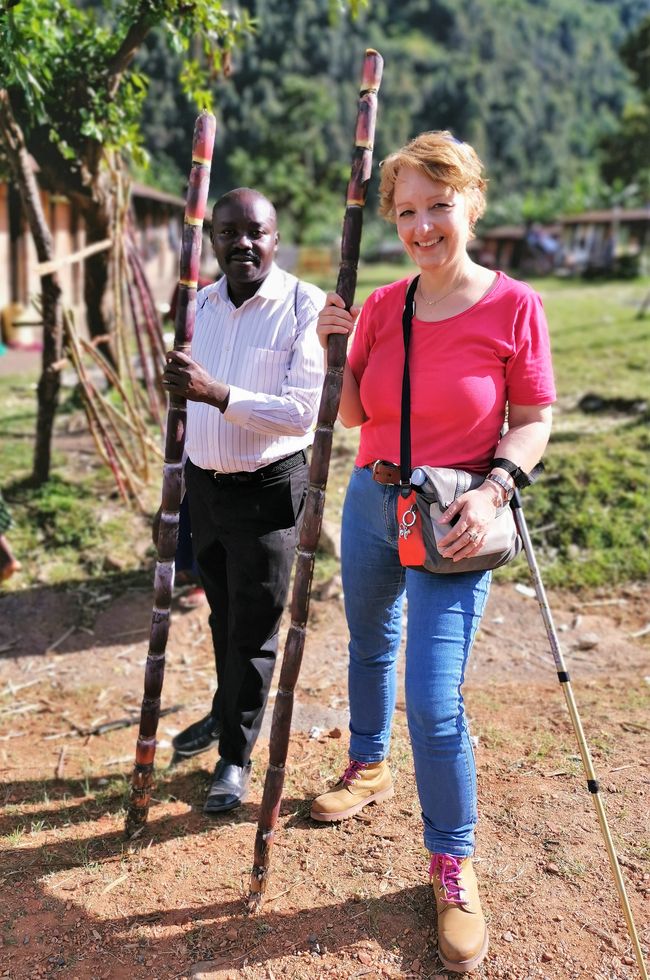
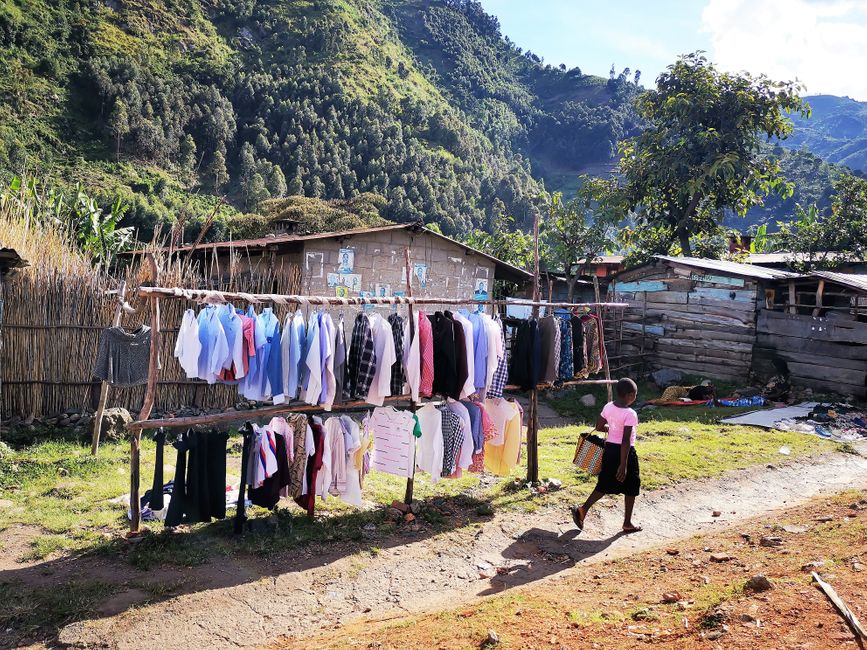
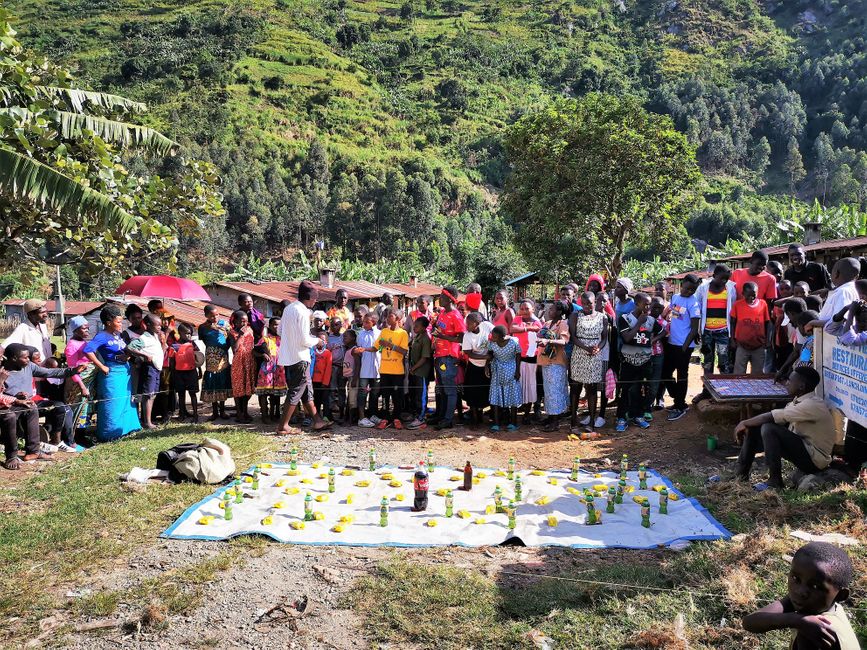
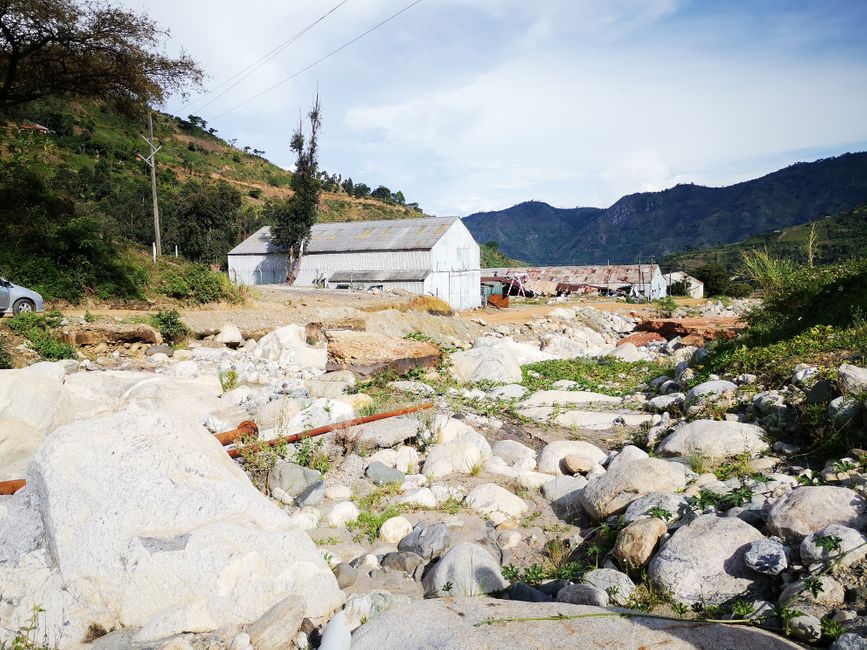
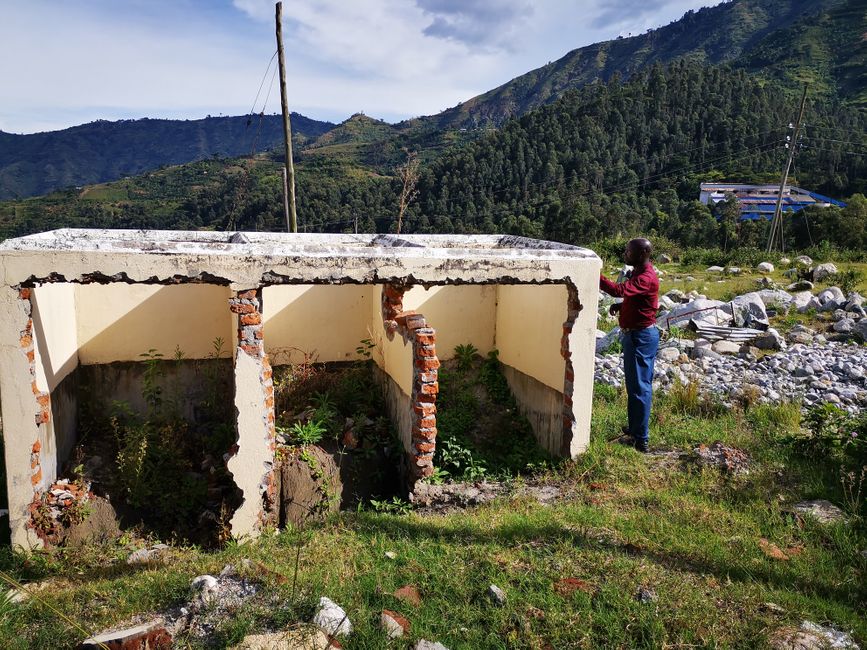
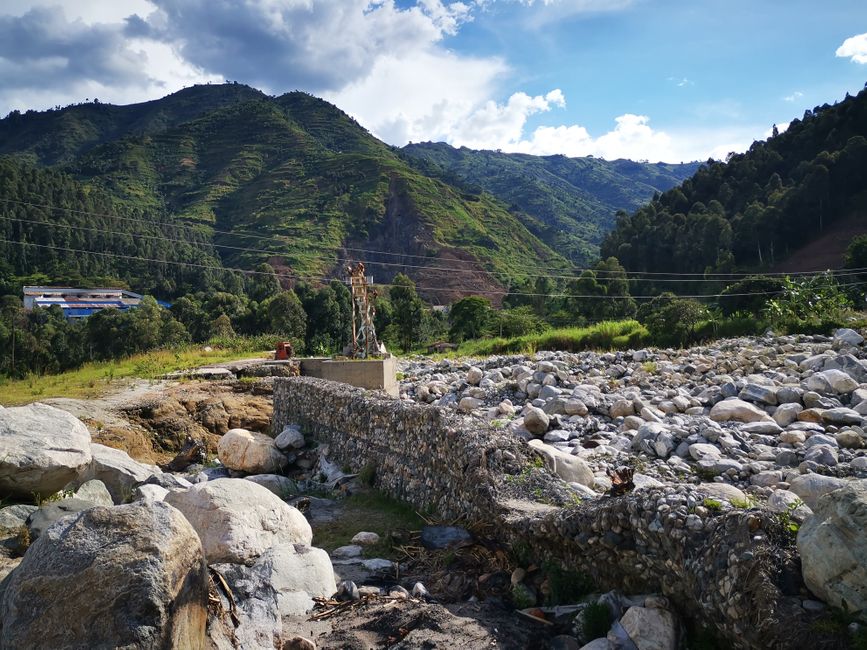
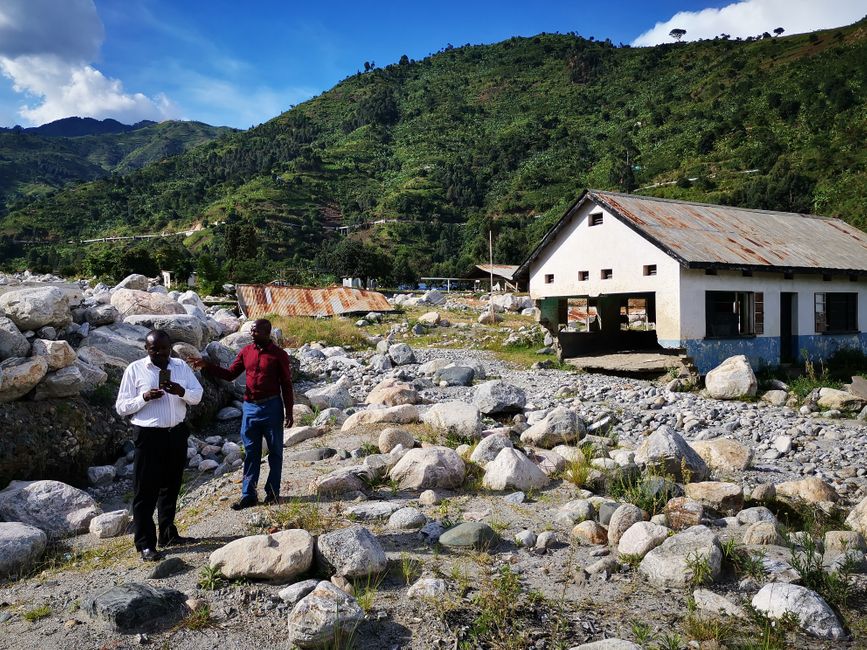
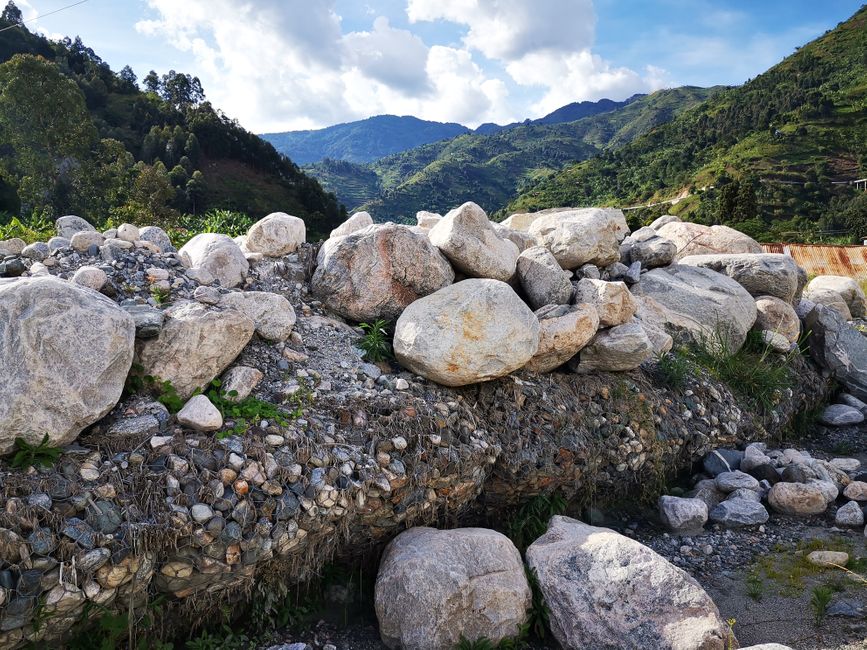
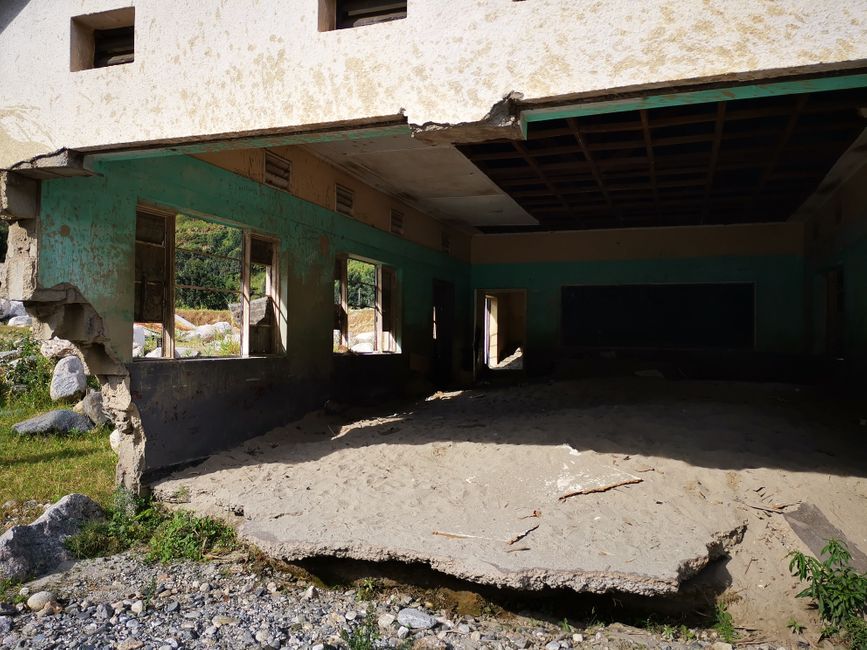
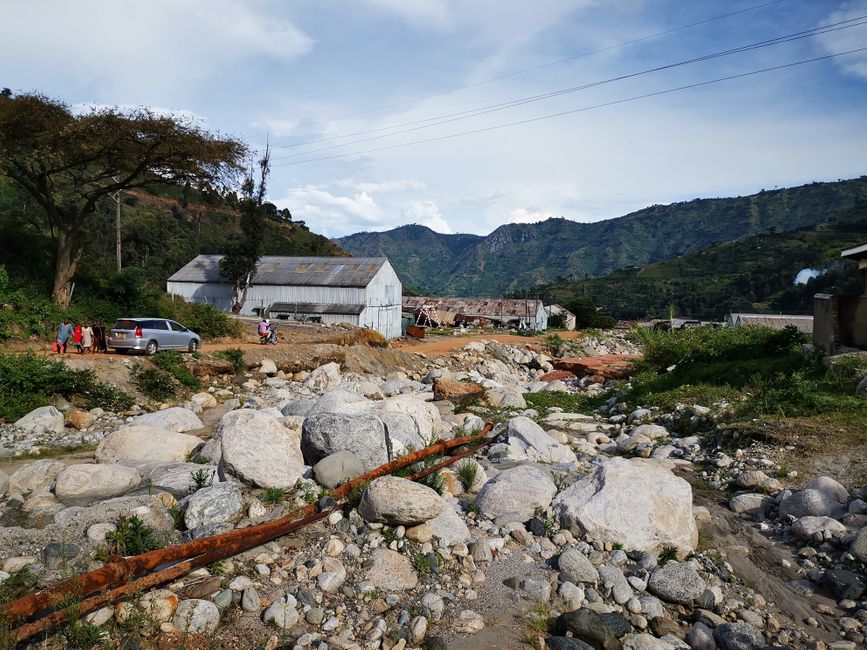
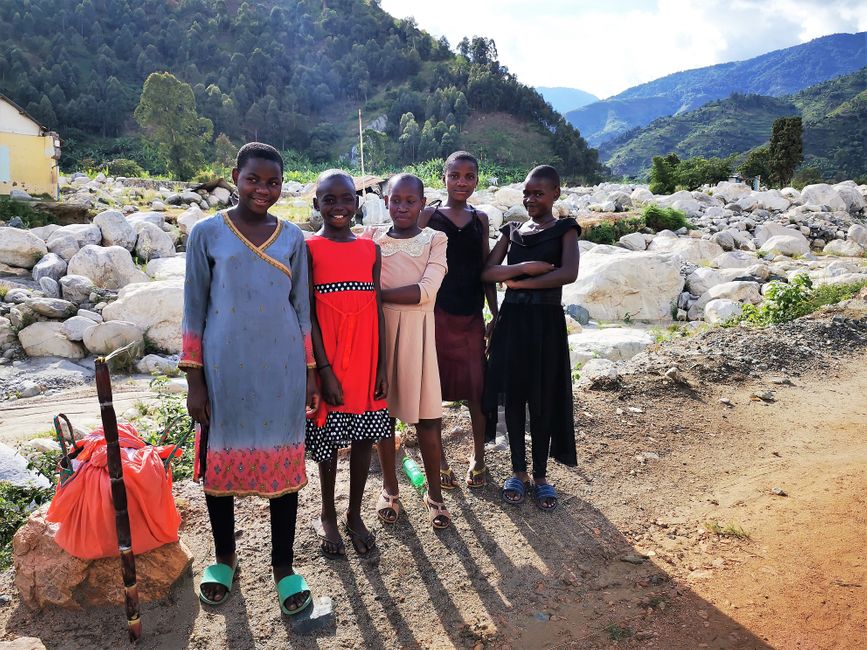
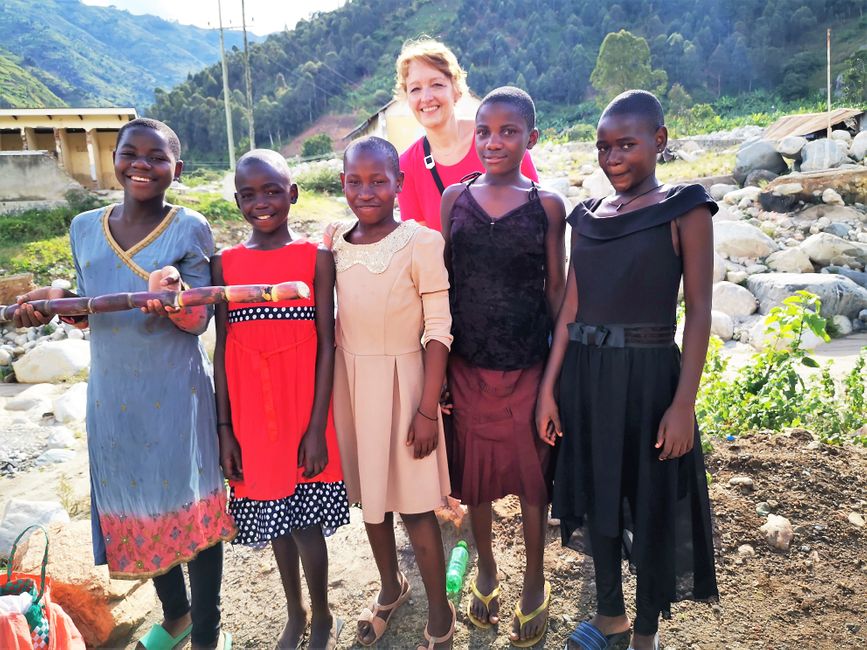
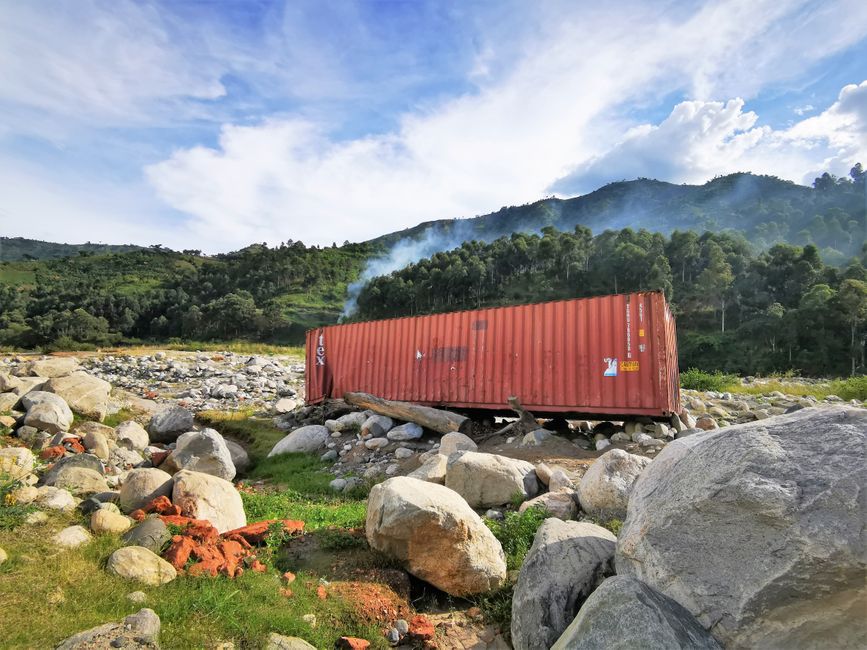
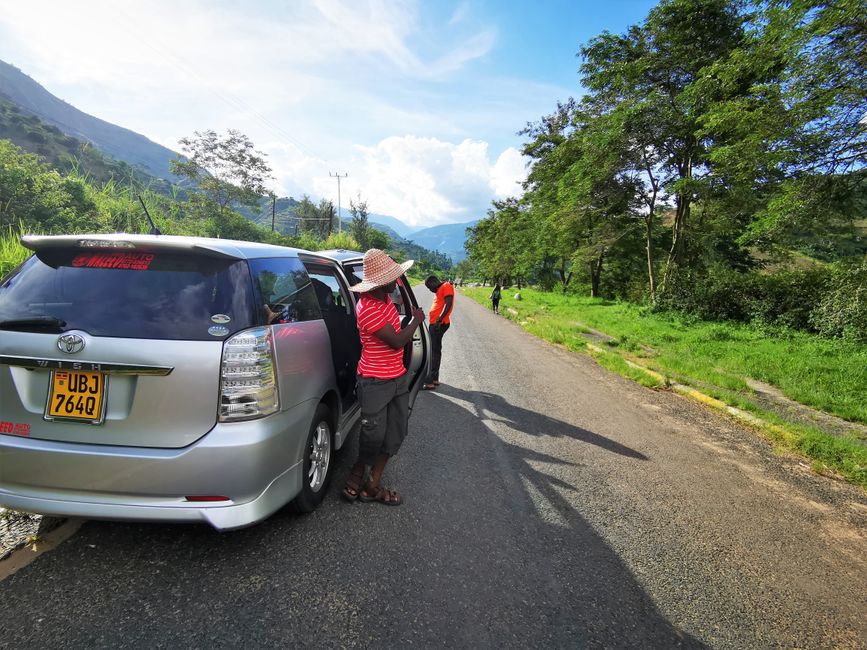
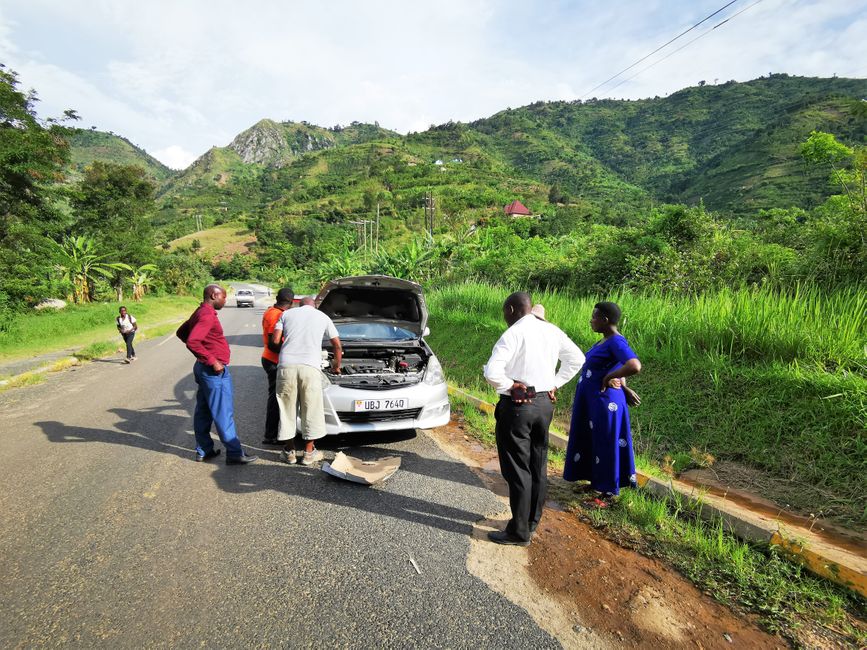
Feliratkozás a hírlevélre
Time flies and it's Sunday again, which means it's time to go to church. This time I am invited to the church service in the church in Masule (in the valley of Kilembe), where Ndumbuko used to go with his family before the Nyamwamba River destroyed their home last year.
Today, Bwambale, Ndumbuko, his wife Semerita, and Baluku, our driver, accompany me.
Yesterday, Ndumbuko was still very preoccupied with our conversation about surnames (see my blog post from Day 12), so I bring up the topic of marriage and partnership in Uganda again.
I ask my two colleagues where their wedding rings are. Ndumbuko lost his and Bwambale's is broken and he never replaced it. Yes, I understand... The two of them smirk mischievously (or maybe "smurfishly" - I like this new word, which one of our politicians invented for the grin of a colleague, very much 😊).
Semerita points to the wedding ring on her left hand and says that she naturally wears it. In Uganda, wedding rings are worn on the left ring finger by both partners (at least among Christians). Ndumbuko explains that the pattern on his wife's dress also indicates that she is married. He further explains that this custom also applies to married men. Ah, I reply - then Bwambale and he should at least both wear these shirts, since they no longer have wedding rings. Semerita agrees with me and says that I should tell her husband what I think.
We also discuss the topic of polygamy, which is still common here in Uganda across all religions, although not as common as in earlier times. So, all my colleagues at RWECO-VIDE are only married to one woman. They explain that in the past, the first wife often asked her husband to marry again in order to get help around the house. Having ten or more children and thus practically being in a constant state of pregnancy, plus taking care of the household, raising and supervising the children, used to be the order of the day for women in Uganda not too long ago.
I can understand this explanation, but I also say that the first wife has no other choice but to accept her fate; divorce would not be an option for her in this case, as she would lose everything. There is no separation of property, as we know it in Germany, because in Uganda it is assumed that the woman can remarry and be provided for. The only problem is if she can't find another man. In case of divorce, the children stay with the husband. The woman is still allowed to see them, that is even legally regulated. However, if the two partners have separated in conflict and the man refuses to let his wife see the children, she would have to sue him in court, which costs money and therefore is not an option. My colleagues agree with me that women are very poorly protected in this system.
So, the three-quarter hour car ride goes by very quickly. Then we walk another 20 minutes on foot. To reach the church, we have to cross the riverbed of the Nyamwamba River. After the bridge was destroyed in last year's flood, our path leads over makeshift planks.
Since the first church service is not yet over, some churchgoers are already waiting outside the church. The church service will last two hours, just like last week. Before the start of the church service, the keyboardist in the front area plays various cheerful church songs and the children dance to them. The church service flies by with lots of singing and music. It is a joyful occasion and I am convinced that our churches would have more attendance again if the church services were more colorful. At the end of the church service, something very special happens, which I have never experienced in a church before, and I think it's great: The churchgoers, who are mostly farmers from the surrounding area, have brought fruits and vegetables from their fields in baskets and bags. An auctioneer auctions off the harvest yields to the highest bidders. This way, they can earn some money. Bwambale also participates and buys a bag of bananas for us.
In front of the church, we meet a good acquaintance of Ndumbuko and Semerita. She is a herbalist and a respected midwife in the region.
Then we begin the ascent to the property where the first guesthouse for tourists by RWECO-VIDE is supposed to be built. And let me tell you, today "sweating" has taken on a whole new dimension for me. Our path starts out "innocently" through a plantation of coffee trees and banana plants. My colleagues advised me to dress warmly, as it could get cool. However, I didn't consider that what they consider "cool" is still very warm for me, coming from the long winter in Germany. A steep footpath leads uphill over rocks and stones, and I feel like I'm doing a step aerobics class in a sauna. My colleagues all grew up in this region and are used to climbing mountains daily. Accordingly, they climb the mountain at a speedy pace. It's noon - 28 degrees Celsius, 70% humidity - my jeans stick to me and my hair is wet as if I just showered.
Just when I think my heart is about to jump out of my throat, we finally reach the property after 1 ½ hours of ascent (they probably would have made it in half the time without me...). From here, you have a magnificent view of the Rwenzori Mountains, down to the Nyamwamba River and all the way to Kasese. I can imagine that this will be a wonderful and refreshing place for future guests.
However, I wonder how guests and goods will be transported up here in the future. There will be porters for the goods and luggage of the guests. And the guests themselves will climb the footpath that I just got to know. I mean, that would be more suitable for younger tourists, as the older ones would fail at this ascent unless they are very fit. My colleagues respond that they have even seen many older tourists hiking in the Rwenzori Mountains. But who knows what "older" means. We will have to think together about the target group again.
I continue to ask if there are cable cars or chair lifts in this area and show them some photos on Google. Of course, it would be a shame to spoil such a beautiful, largely unspoiled nature in this way. But a small chair lift that blends into nature could be an idea. However, at the present time, it is completely unrealistic, as RWECO-VIDE is far from having the financial means for it. Later, Bwambale shows me the chair lift that actually existed and was operated by Kilembe Mining. However, the Canadian company left the valley years ago, and the lift has been out of operation for a long time; the valley station was completely destroyed in last year's flood, only the masts with the chairs are still standing.
Ndumbuko also wants to show me the graves of his parents and where he grew up. The property is directly adjacent to the land of the guesthouse. Since his parents passed away, the living spaces (several small houses) have been empty. If the guesthouse project is successful, he can imagine selling the property to RWECO-Vide, which would offer the possibility of expanding the project in the future.
When we arrive at the graves, I notice that Ndumbuko's grandmother lived to be 103 years old. So maybe it was not a fairy tale when Principal Ludwig told me that his grandmother lived to be 140 years old. Later, Ndumbuko tells me that I am the first visitor he has taken to his parents' graves. I feel honored!
I am always amazed at the conditions under which people practice agriculture here. Here, too, the slope drops steeply with about 70% gradient. It is clear that machines cannot be used there. Any heavy rain can be dangerous, and landslides occur regularly as well. Not to mention the hardship of cultivating this land. I show my colleagues pictures of the rice terraces in Bali. The climatic conditions and the landscape have some similarities, and I wonder why they haven't switched to terrace farming here as well. Even in Bali, rice cultivation is done manually and is laborious, but the terraces provide better protection for the plants, and despite everything, the cultivation seems easier than on Uganda's steep slopes.
Then Bwambale gives me a little demonstration of how easily he can run up and down the slope. I would have broken all my bones doing that. But for my colleagues, it's really nothing special. They are all walking in regular street shoes, even Semerita in flip flops.
On the way back, we make a stop at the construction contractor who is also being considered for the construction of the guesthouse (although the construction will be put out to tender). In his living room, there is a radio cassette recorder and there is also light. Both are powered by a solar panel. Then my eyes fall on a poster showing Queen Elizabeth together with the king of the local region, King Mumbere. He is the king of the Kingdom of Rwenzuru. He is highly respected by the people here and recognized as a cultural leader. However, he has been in prison since 2016 and has been awaiting trial ever since.
Although Uganda is a republic that has been ruled by President Yoweri Museveni since 1986, the former kingdoms (principalities) still play an important role for Uganda's population.
We also stop by at an uncle of Bwambale's on the way down to the valley. Bwambale Youssouf Joseph has become a bit frail at around 75 years old, which is why he only ventures a short distance from his house. He is currently looking after his grandchild when we arrive. It is usual and necessary for older people to eventually stay at home and be taken care of by their families, because at some point even the most experienced mountain dwellers can no longer climb up and down the mountains.
Before we reach the valley and the village of Kilembe, there is a cheerful atmosphere there. The people are enjoying their free Sunday. A game of "ring throwing" is being played on one corner. I really want to try fresh sugarcane, which the children here eat as a sweet treat. So we buy sugarcane stalks from a stand (1000 UGX per stalk, about 25 cents). I later give away half of my sugarcane stalk to some girls who are happy to meet a mzungu (a white person).
The hotel director grins when he sees what I have brought along again today. The chef willingly takes care of the preparation. The sugarcane is peeled and cut into small pieces. These pieces are chewed until the sweetness is gone and only the fibers remain. Very delicious!
Feliratkozás a hírlevélre
Válasz
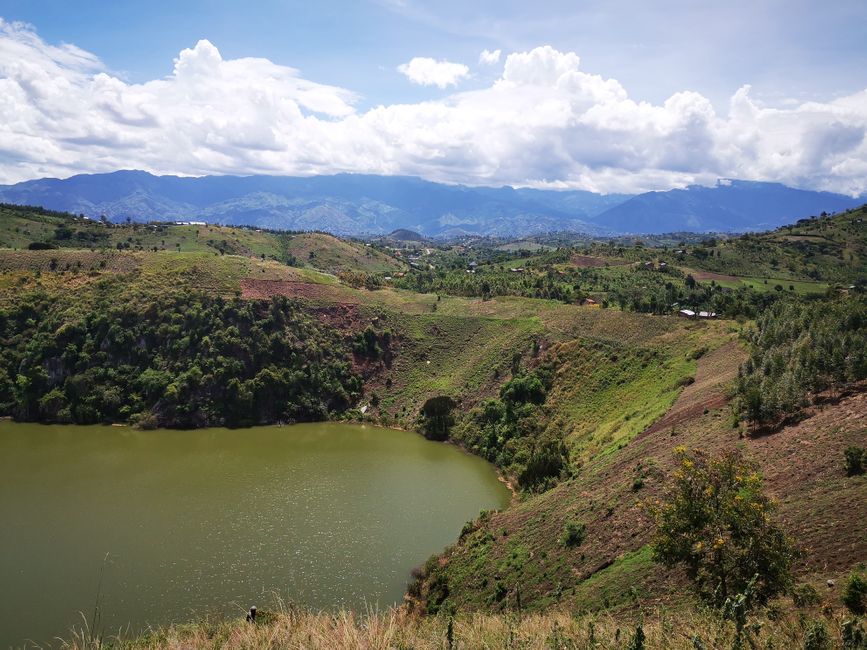
Uganda utazási jelentések

